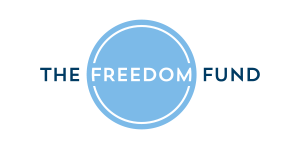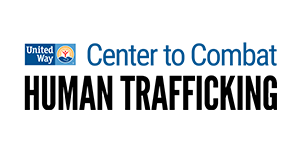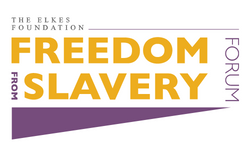
TIME TO ACT: GALVANIZING AROUND A SURVIVOR-CENTERED ANTI-MODERN SLAVERY MOVEMENT
The 2023 Global Forum brought together a large number of stakeholders to reaffirm the focus of the anti-modern slavery movement around meaningful engagement with survivors and inspire cohesive action that galvanizes the movement around a survivor-centered response to modern slavery.
The goal of this special 10th-anniversary event was to establish a cohesive narrative across the anti-slavery movement.
Currently, modern slavery is not recognized globally as an issue of universal concern. A strong, united way forward is needed to catalyze acknowledgment of the scale of the problem at local, regional, and global levels and generate the public and political will necessary to successfully end modern slavery.
The 2023 Global Forum came at a time when modern slavery has increased around the world, and the contributing factors are exacerbating the scale of the problem.
According to global estimates, nearly 50 million people were living in modern slavery in 2021. Of these people, nearly 28 million were in forced labor. While these figures do not tell the whole story, they help us get a sense of the scale of the problem and call for us as a movement to respond with urgency.
2023 Global Forum Hosts

Anesa "Nes" Parker
Anesa "Nes" Parker Bio
Anesa “Nes” Parker is a Principal at Deloitte Consulting and leads the Sustainability, Climate and Equity efforts for Deloitte’s Government & Public Services Practice.
Previously, she was the Government and Program Strategy Market Offering leader. Nes has significant experience guiding clients through strategy-led transformations to achieve outcomes that are good and equitable for people, planet and prosperity.
Nes is passionate about applying Deloitte’s capabilities and solutions to social causes. She’s been a founder and leader of Deloitte’s Anti-Human Trafficking (AHT) Community, Refugee Community of Interest (RCOI), and Deloitte to International (D2i) teams over the years which support various pro bono projects and thought leadership.
She serves on the board of Free the Slaves and is an advisor to the board for Survivor Alliance. Both organizations are leading the fight against modern day slavery and elevating the voices of experts with lived experience.
Nes holds a BA from Vassar College and a MPA from Columbia University. She’s originally from Northern California and currently resides in Washington, DC with her partner and their English Bulldog.

Ronny Marty
Ronny Marty Bio
Mr. Ronny is a Certified Public Accountant, hospitality manager, CEO of Marty Professional Cleaning Services in Florida.
2023 Global Forum Detailed Agenda
May 8 – Survivor-Centered Movement: Practices and Lessons for an Effective Anti-Modern Slavery Movement
Keynote Speaker
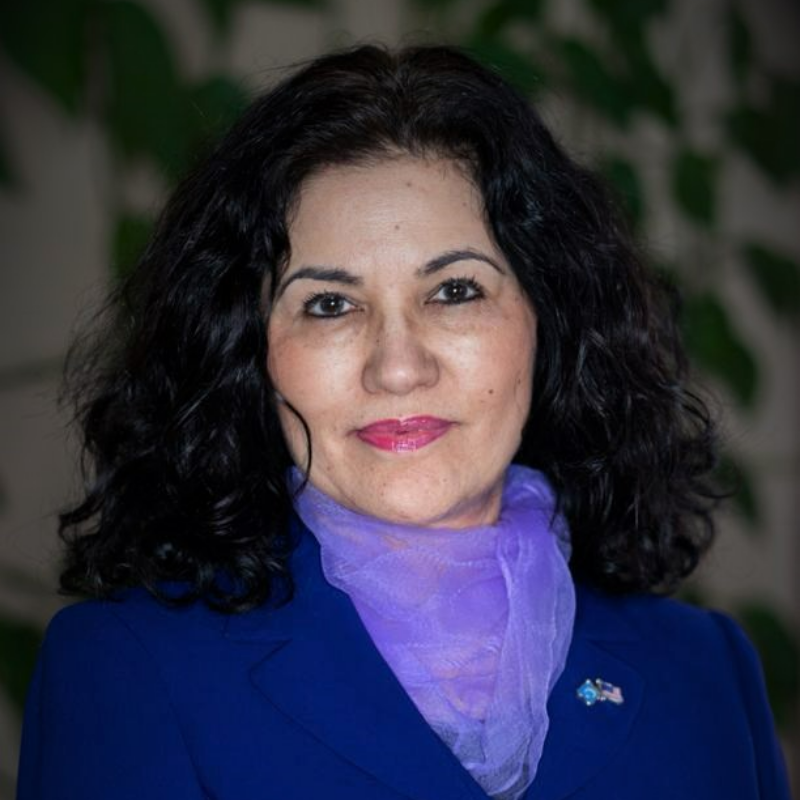
Rushan Abbas, Founder and Executive Director of Campaign For Uyghurs
Rushan Abbas Bio
Rushan Abbas is an Uyghur American activist who has been campaigning for the human rights of the Uyghur people since she was a student at Xinjiang University (In East Turkistan), organizing and leading the pro-democracy demonstrations at Xinjiang University in 1985 and 1988, she continued her activism since she arrived in the United States in 1989. She co-founded the Uyghur Overseas Student and Scholars Association in 1993 and served as its first Vice-President, which played an important role in the establishment of the Uyghur American Association in 1998. Ms. Abbas was subsequently elected Vice President of UAA for two terms.
In 2017, when Beijing;’s genocidal crimes accelerated against Uyghurs, Rushan Abbas co-founded the Campaign for Uyghurs (CFU) to advocate and promote human rights and democratic freedoms for Uyghurs, and mobilize the international community to act to stop the human rights atrocity in East Turkistan. Ms. Abbas introduced and led the “One Voice One Step” movement and successfully organized a demonstration on March 15th, 2018, in 14 countries and 18 cities on the same day to protest China’s detention of millions of Uyghurs in concentration camps. In September 2018, Rushan Abbas’ sister, Gulshan Abbas, was taken by the Chinese government six days after Rushan Abbas’ first public speech.
In July 2020, Ms. Abbas’ organization, CFU, published the report “Genocide in East Turkistan,” which laid out the ways that the actions of the Chinese regime met every condition of genocide laid out in the Convention on the Prevention and Punishment of Genocide. CFU was nominated for a Nobel Peace Prize for activism and advocacy done to promote the Uyghur cause for freedom in February 2022.
Ms. Abbas frequently briefs lawmakers and officials around the world on the human rights situation in East Turkistan and testifies at the United States Senate and Congress on the Chinese regime’s genocide and crimes against humanity. She regularly appears on media outlets to advocate for the Uyghur cause and gives public speeches, having spoken for audiences at Holocaust museums, universities, U.S. embassies, interfaith societies, grassroots groups, and more.
Ms. Abbas has three children and currently resides in Falls Church, Virginia, with her husband, Abdulhakim Idris, Executive Director of the Center For Uyghur Studies.
Panel Discussion
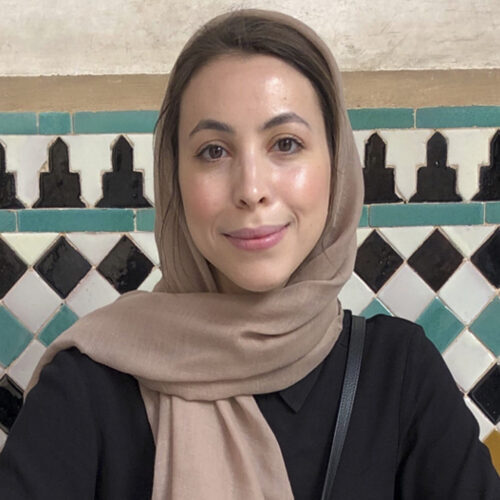
Rima Kalush
Moderator
Director, Migrant Rights.org
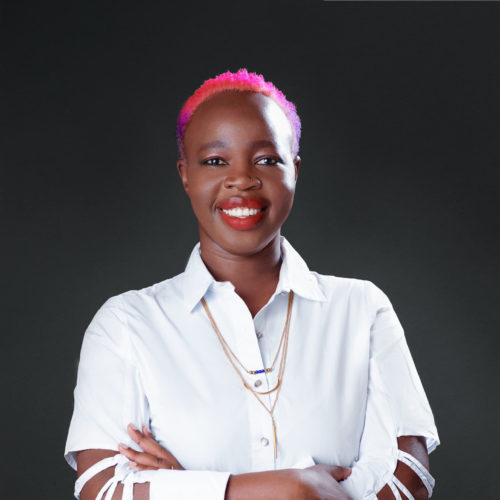
Sophie Otiende
Panelist
CEO, Global Fund to End Modern Slavery
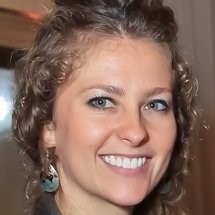
Tegan Hare
Panelist
Team Leader, Survivor Engagement, US JTIP
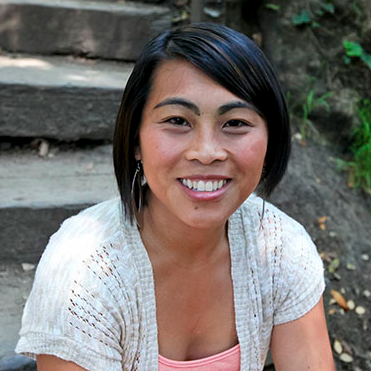
Minh Dang
Panelist
Executive Director, Survivor Alliance
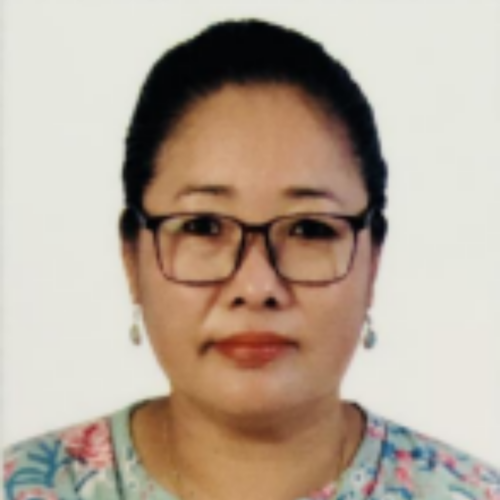
Benu Maya Gurung
Panelist
Executive Director, Alliance Against Trafficking in Women and Children in Nepal
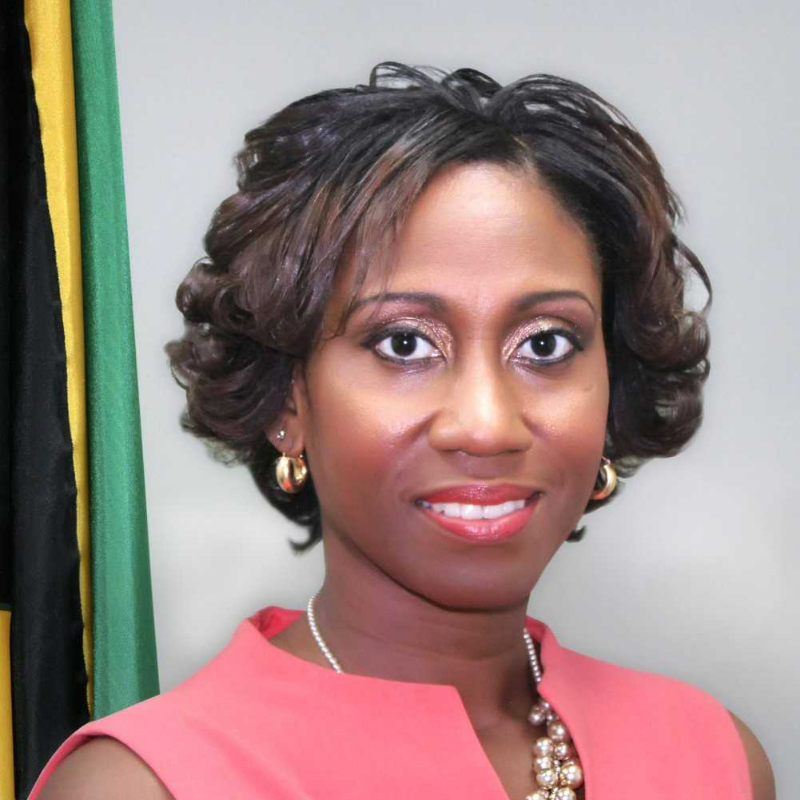
Diahann Gordon Harrison
Panelist
National Rapporteur on Trafficking in Persons and Children’s Advocate of Jamaica
Morning Side Event Session – 90 Minutes

Side Event A1: Meaningful Survivor Engagement
This Side Event aims to build a shared understanding of what constitutes meaningful survivor engagement, inclusion, and leadership, which is pertinent to building a movement that centers on lived experience. The event will explore questions on definitions, what these terms mean practically, how learning in the sector has evolved, and the ongoing work around leadership, engagement, and inclusion. It aims to set a shared, united way forward and develop and share the tools needed to achieve the core vision of a survivor-centered movement. Facilitators will draw on existing knowledge products, such as frameworks for measuring lived experience leadership and examples of survivor engagement in practice from across the sector and beyond. It aims to set a shared, united way forward and develop and share the tools needed to achieve the core vision of a survivor-centered movement.
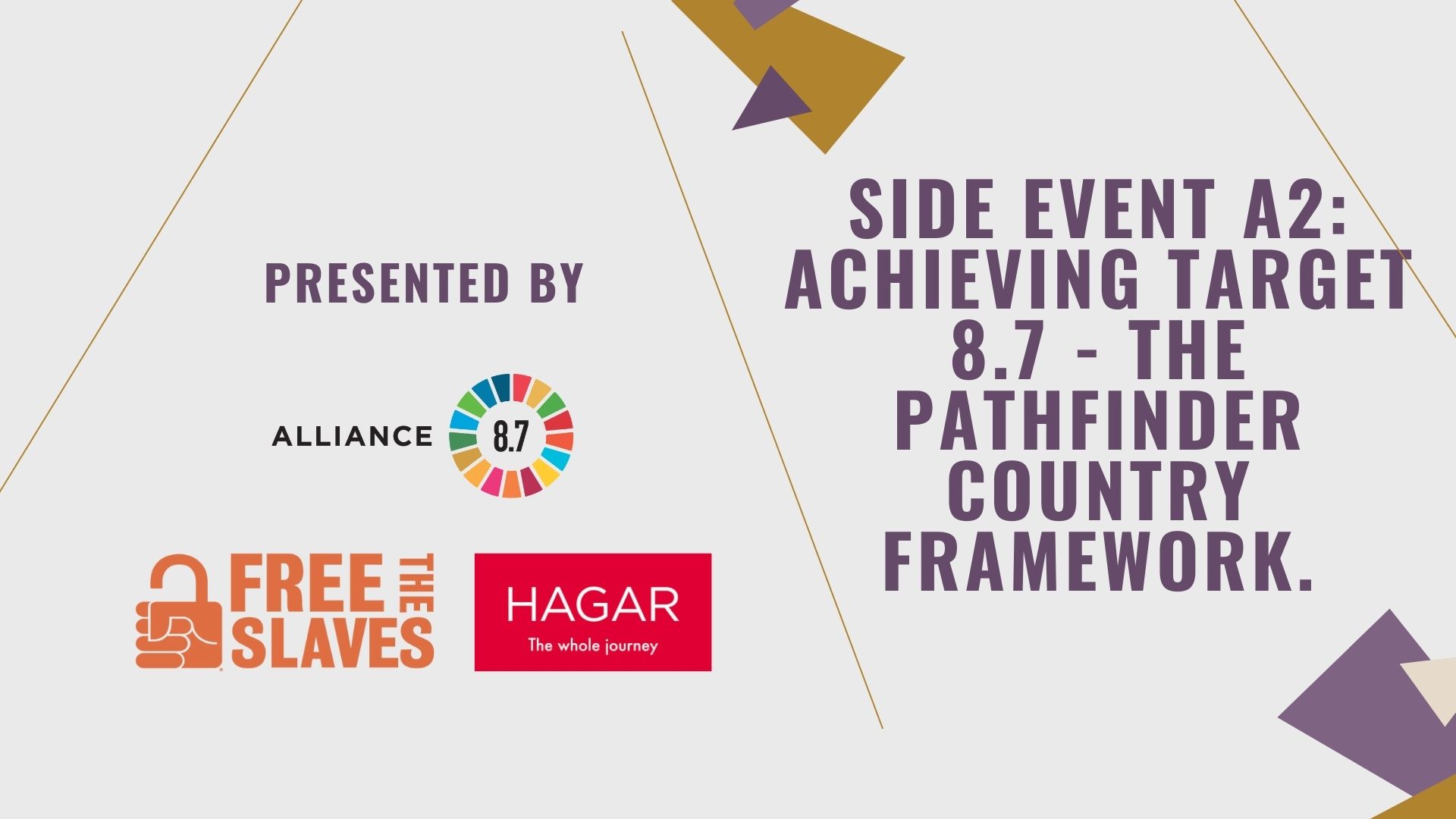
Side Event A2: Achieving Target 8.7 - The Pathfinder Country Framework
This Side Event discusses how survivors and civil society organizations (CSOs), businesses, and government partners can help pathfinder countries achieve target 8.7 within the timeframe set forth by SDG2030. The discussion will shed light on the pathfinder process’s ability to achieve target 8.7, including the whole-of-government approach. Survivors’ engagement is a key component of implementing the Accountability Framework of the Alliance 8.7. The event will include experts and survivors from pathfinder countries who will contribute their perspectives on how the process of the pathfinder’s roadmap development can be inclusive of key partners and the needs of affected communities and survivors.
Afternoon Side Event Session – 60 Minutes
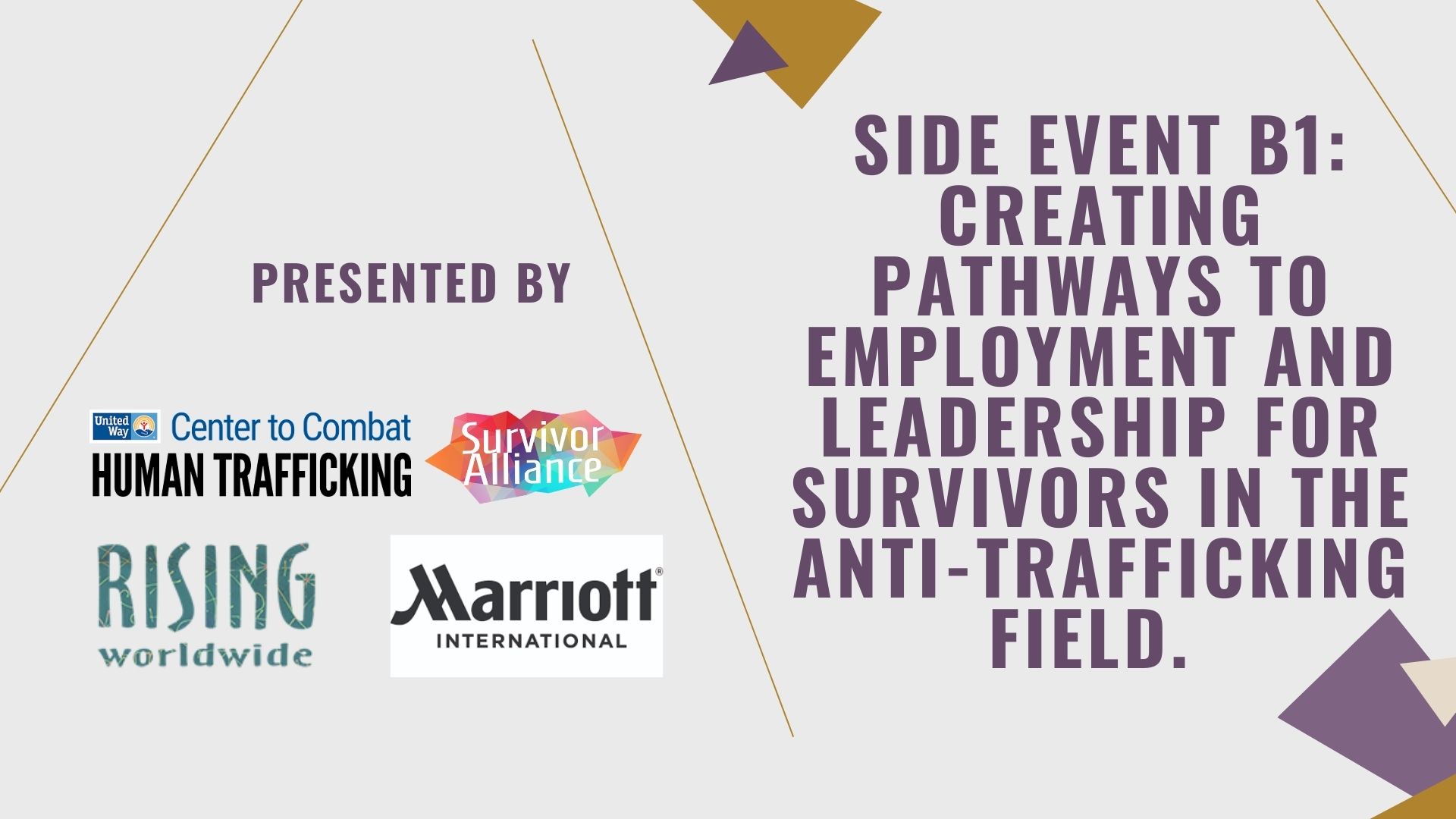
Side Event B1: Creating Pathways to Employment and Leadership for Survivors in the Anti-Trafficking Field
This Side Event aims to advance survivor leadership and prioritize survivor engagement through an exploration of new and exciting economic empowerment and employment opportunities. The facilitators will share their expertise on survivor-centered approaches to combat human trafficking, assisting participants in developing knowledge and skills to foster meaningful and ethical allyship. This side event will highlight two innovative programs, the Rising United Leadership Program, and The Pembrook Fellowship, providing attendees with insights and lessons learned from the first two years of the former and introducing them to the latter.

Side Event B2: Cross Collaboration of Survivor-Led Organizations with Non-Survivor-Led Organizations
The Side Event proposal addresses the lack of cross-collaboration between survivor-led organizations and non-survivor-led organizations in the anti-human trafficking movement. The session will feature a brief history of the collaboration between Awaken and United Justice, two organizations led by non-survivors and survivors, respectively. The presentation will cover practical steps for non-survivor-led organizations to partner with survivor-led organizations, highlighting common challenges and frustrations faced by both groups. The Side Event will end with a discussion session for participants to ask questions and share their experiences.
Workshops

Workshop A1: Opening the Door - Redefining Trauma-Informed Practices in Housing for Survivors
The Workshop will explore the practical application of trauma-informed care in housing programs for human trafficking survivors. Using a case study of 73 anti-trafficking housing programs in the US, the presenters will highlight the need to move away from rule-based and punitive models towards a voluntary services approach that centers survivor choice and empowerment. The Workshop will equip participants with practical strategies to ensure equitable access to housing for survivors without further harming them. This Workshop thus helps shift to a survivor-centered approach to services.

Workshop A2: Designing a Participatory Action Anti- Trafficking Research Study
This Workshop will showcase the National Survivor Study as an example of anti-trafficking research that leverages genuine partnerships between survivors and allies to generate more relevant and actionable data for change. Participants will be engaged in a critical discussion to analyze the factors that contribute to the success of a participatory action research project, including both the project structure and the actual study design, using examples from the NSS. Facilitators will help participants critically examine the challenges and opportunities in designing and implementing participatory action research and give examples of various scientific tools and methods that can be leveraged or adapted to be inclusive and participatory. The Workshop will contribute to the capacity building needed across the movement by showcasing approaches and tools that can truly upend existing power dynamics in research and ensure that the anti-trafficking movement is led not only by research and evidence but also by survivors.
May 9 – Demand-Driven Forced Labor: Tackling and Dismantling the Global Economic Model that Fuels Modern Slavery
Keynote Speaker
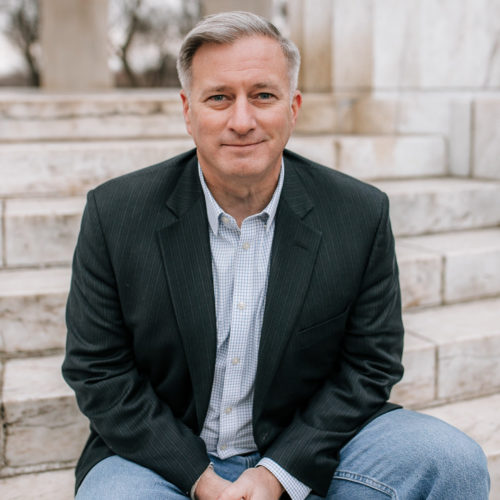
John Richmond, U.S. Ambassador (ret.)
John Richmond's Bio
As Chief Impact Officer at Atlas Free, Ambassador Richmond helps resource and accelerate organizations that fight human trafficking. Ambassador Richmond is a Senior Fellow at the Atlantic Council, Senior Advisor to Love Does, founder of the Libertas Council, and a frequent speaker on justice, foreign policy, leadership, and vocation.
Panel Discussion
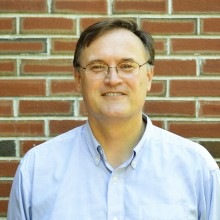
Shawn MacDonald
Moderator
CEO, Verité
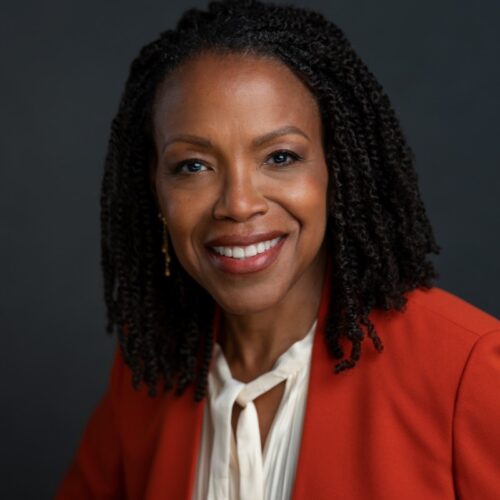
Cynthia Whittenburg
Panelist
Executive Vice President, National Customs Brokers and Forwarders Association of America Educational Institute
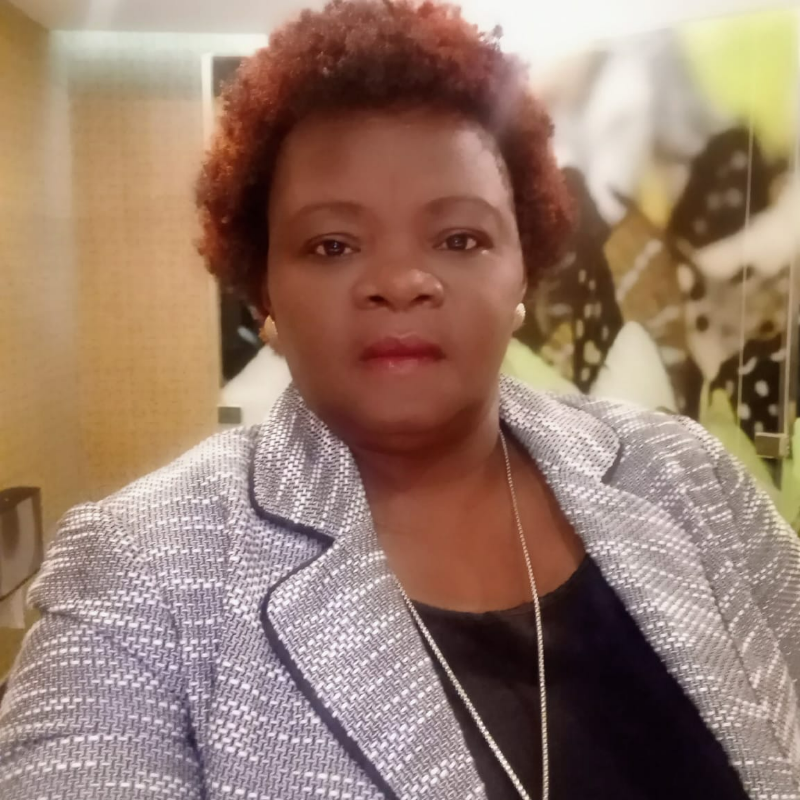
Cristiana Luis
Panelist
President, MUDHA

Mahendra Pandey
Panelist
Senior Manager, Humanity United
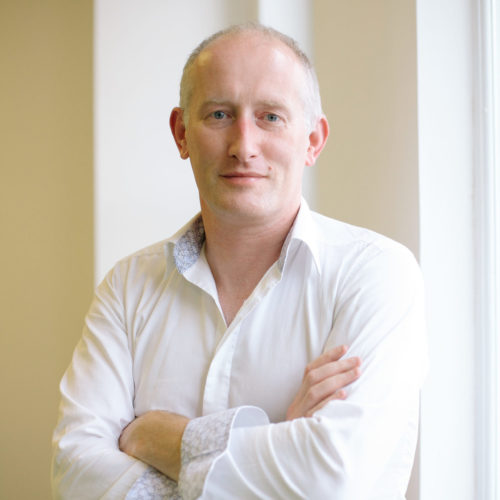
Andrew Wallis
Panelist
CEO, Unseen
Morning Side Event Session – 90 Minutes
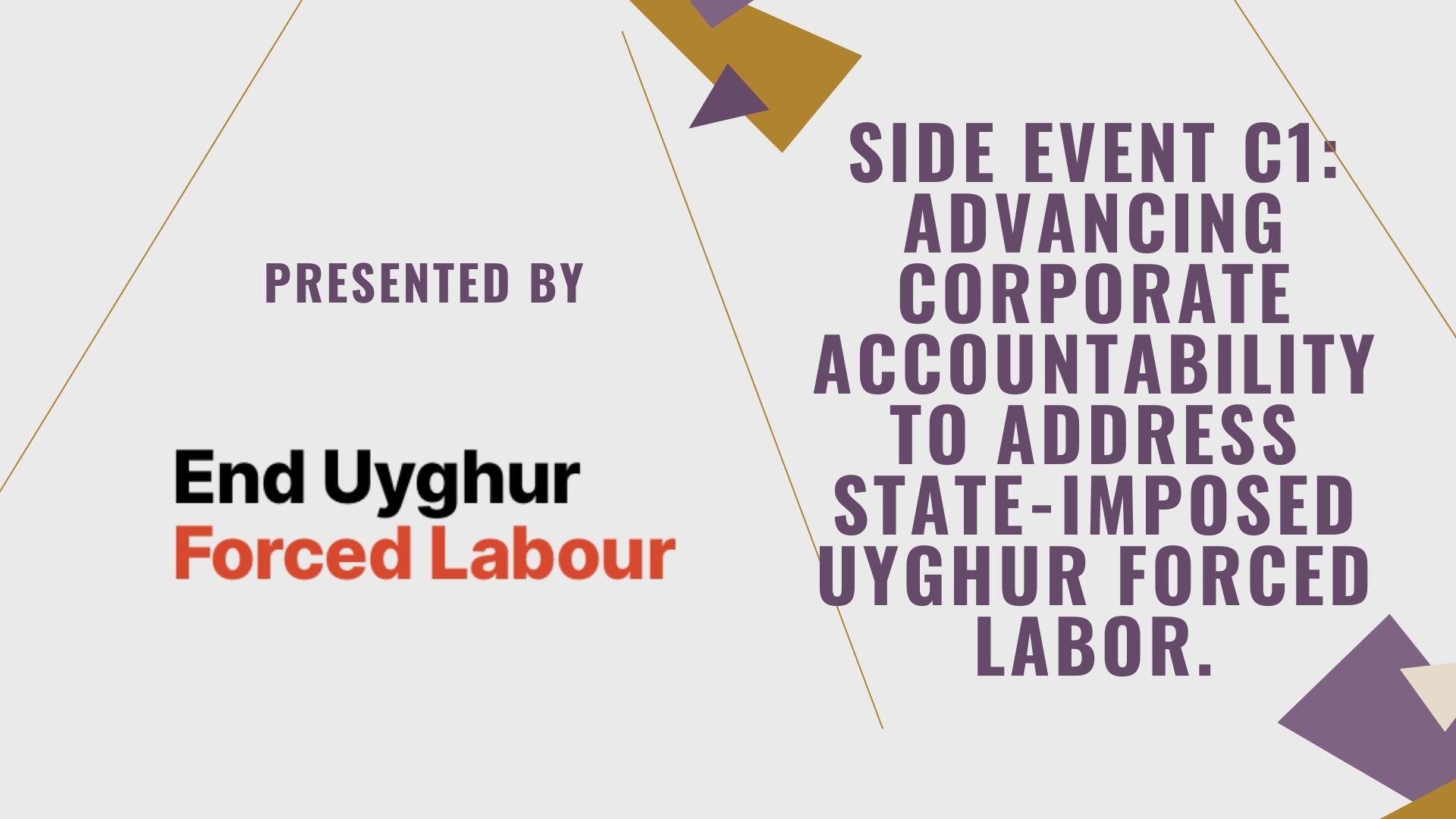
Side Event C1: Advancing Corporate Accountability to Address State-Imposed Uyghur Forced Labor
The Side Event will discuss the Chinese government’s human rights abuses against the Uyghur population and other Muslim-majority peoples. The facilitators will share their collective Call to Action, which has now been codified into US law through the Uyghur Forced Labor Prevention Act (UFLPA). The event will discuss the success of the UFLPA in banning the importation of any goods made with Uyghur forced labor, the importance of Uyghur-led organizations in policy success, and the need for survivor-centered advocacy strategies. The event will also address the challenges faced by survivors in speaking out against human rights abuses due to transnational repression and surveillance carried out by the Chinese government.

Side Event C2: Survivor-Centered Interventions and Tools
Approaches to human trafficking that are developed without survivor knowledge often fail because they do not reflect the lived experience of the survivors, they do not address the systemic issues that contribute to the crime, and they increase the risk of ineffective or harmful programming. EverFree & Rahab’s daughters will share how they are leveraging survivor-centered tech solutions to increase impact and develop survivor-led interventions. EverFree will share about the Freedom Greenlight – a tech tool built in collaboration with researchers and lived-experience experts from around the world. It is a participatory, strengths-based need assessment that puts the power back in the hands of survivors so they can identify their strengths and vulnerabilities, access the support they need, and attain lasting freedom. Rahab’s Daughters will share how they develop and leverage AI and predictive analytics to identify victims of human trafficking better and provide safe alternatives, including housing and wrap-around services.
Afternoon Side Event Sessions – 60 Minutes

Side Event D1: Global Slavery Index Preview
Walk Free is launching the next edition of the Global Slavery Index on 24th May in London, UK. Ahead of the release of the fifth edition, join the authors of the report to learn about key themes, the methodology and advocacy plans. This will be an interactive session with a short presentation and the opportunity for Q and A.

Side Event E1: Putting Traffickers Out of Business
In this Side Event, facilitators will share excerpts of a pre-recorded interview with a sex buyer and a survivor of human trafficking. They will examine the modus operandi of buyers and traffickers in the region and how they succeed in recruiting and gaining control of victims and keeping them in bondage. The survivor will share the trauma experienced and the impact of that trauma during and after the trafficking experience. Participants will have the opportunity to share their own experiences as survivors or persons knowledgeable of traffickers’ modus operandi. Following this sharing, participants will engage in discussions, via small groups, on the risk factors associated with this criminal activity and what participants can do to discourage the demand for these services and also to reduce recidivism of human traffickers and sex buyers. Strategies such as the criminalization of sex buying will be discussed.

Side Event E2: The Role of Government in Combatting Modern Slavery - Case Studies from Senegal and Sierra Leone.
The Side Event will examine how governments can combat modern slavery at different levels, including international, national, regional, and local. The presenters will draw on case studies of two projects in Senegal and Sierra Leone, where government support has been crucial to the success of the projects. The event will explore successes, challenges, and lessons learned from efforts to build a strong sense of buy-in and ‘ownership’ at these different levels of government in both countries. The broader themes discussed will include the role of government in combating modern slavery, as well as opportunities and obstacles towards strengthening survivors’ voices. The event will also discuss the inclusion of survivors in government decision-making, and question prompts directed to survivors will be included in the delivery of the material.
Workshops

Workshop B1: Behind the Passion
The Workshop shares the facilitators’ experience of researching, conducting fieldwork, and running awareness-raising campaigns about modern slavery in Qatar, particularly related to the construction of infrastructure for the FIFA 2022 World Cup. The Workshop will provide theoretical and practical tools to help participants raise awareness campaigns and advocate for unpopular issues like modern slavery. Attendees will learn about the framework used in the project, and the lessons learned from the experience, as well as have the opportunity to engage in discussions and network with other stakeholders.
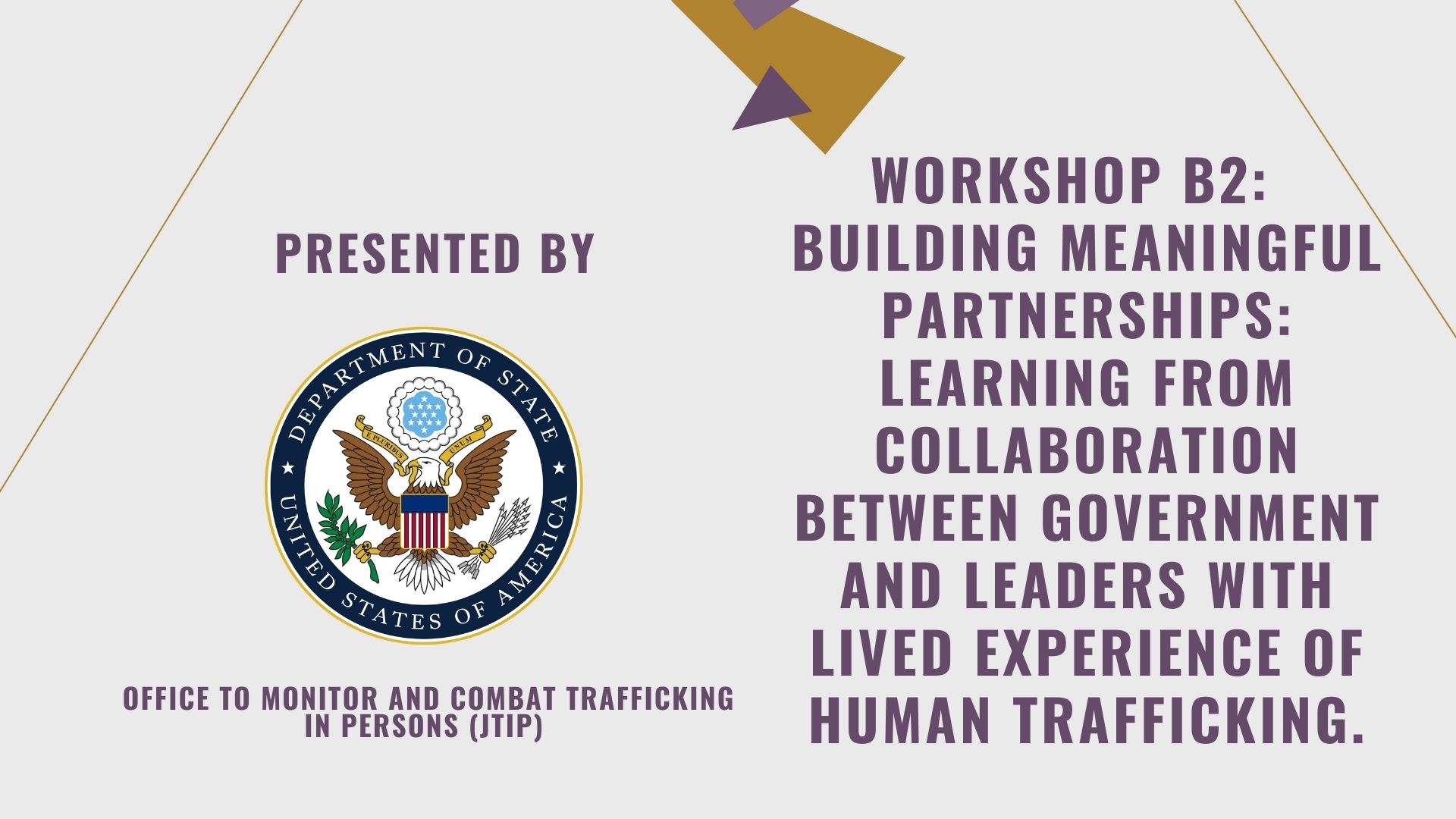
Workshop B2: Building Meaningful Partnerships - Learning from Collaboration Between Government and Leaders with Lived Experience of Human Trafficking
This Workshop will provide insights into promising practices for engaging survivors in the development of anti-trafficking policies, programs, and products. The facilitators will share important lessons learned on engaging survivors and lead an interactive group activity aimed at strengthening trauma-informed partnership practices to support meaningful survivor engagement. The Workshop will be highly participatory, with most of the 90 minutes designated for a small group interactive exercise and discussion. The workshop will be co-facilitated by experts with lived experience of human trafficking who will provide additional insights and challenge current practices as necessary. The Workshop will be relevant to different knowledge levels as facilitators will present basic principles of survivor engagement. Those more experienced in working with survivors will also benefit from hearing directly from facilitators with lived experience of human trafficking.
May 10 – Awareness Raising for Ending Modern Slavery: Effective Mobilization and Elevating of Our Voices
Keynote Speaker
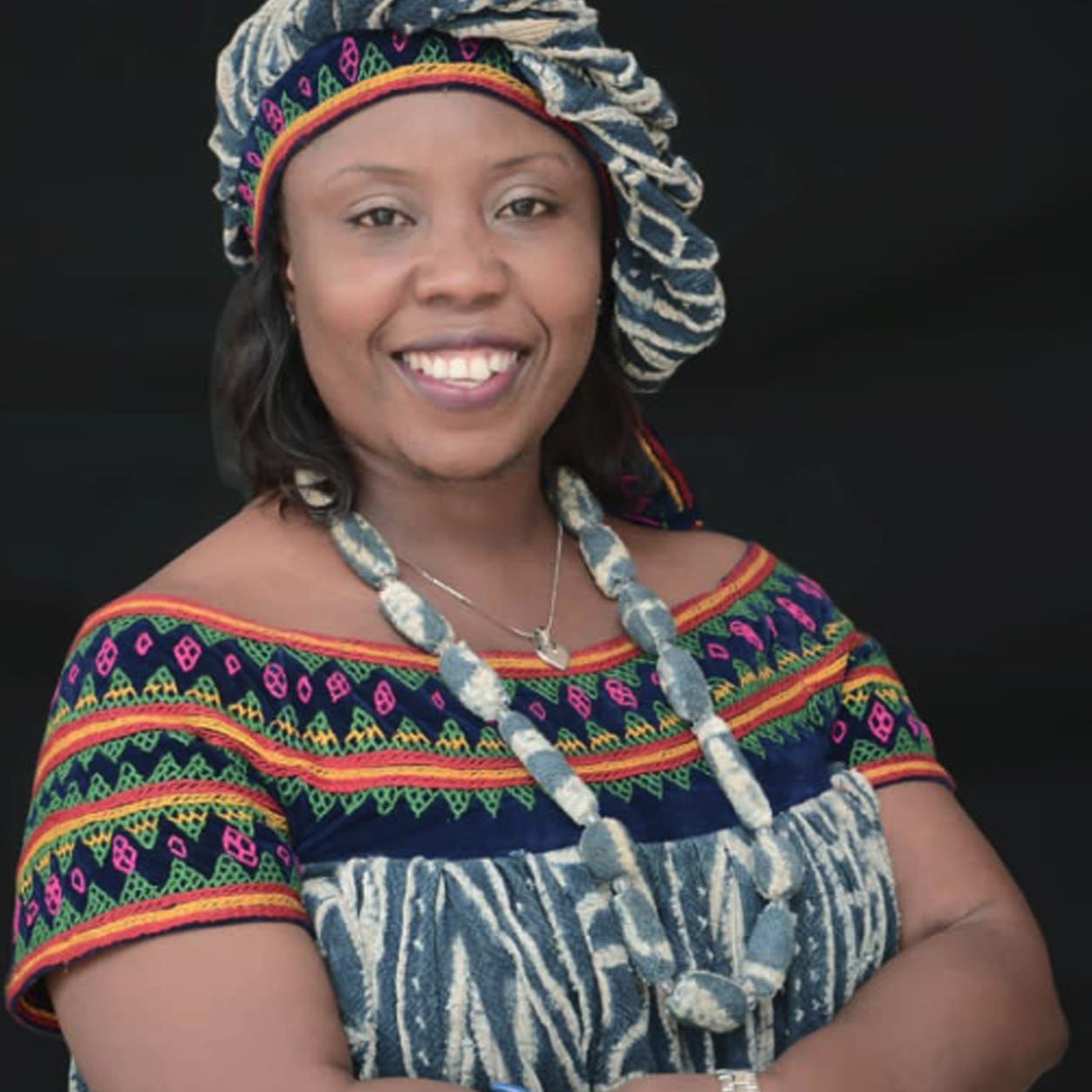
Awah Francisca Mbuli, Founder and Executive Director, Survivor Network Cameroon
Awah Francisca Mbuli's Bio
Awah Francisca Mbuli is a survivor of sex and labor trafficking and almost a victim of organ trafficking. She has a suspended Master’s degree in Human Rights and Multiculturalism from the Buskerud International University, Norway. She is the founder and Executive Director of Survivors’ Network (SN), a Cameroonian-based, female-led NGO leading the fight against all forms of human trafficking in Cameroon and Sub-Saharan African countries. She is an innovative and passionate leader who is fighting to prevent others from experiencing what she has been through.
Her work has been recognized nationally and internationally. She has two International Visitors Leadership programs awarded by the U.S Department of State in combatting human trafficking. In 2018 she was named a Trafficking in Persons hero for Cameroon, and she still is today. She also received recognition in 2020 for her work on Combatting Trafficking in persons. This recognition was awarded virtually.
Due to her hard work, she is the 2022 Ashoka fellow from Anglophone West Africa, joining two other women from Nigeria. Her organization, Survivors’ Network, also won the Elkes Impact award for best community-based organization in the fight to combat modern slavery in 2022 at the Global Freedom from Slavery Forum in Morocco, organized by Free The Slaves. She also doubled as their Ambassador for two years.
Francisca’s innovative programs focus on rescuing survivors, assuring their safe return home and reuniting them with their families. As part of this process sur psychosocial services, economically empowering women who are survivors of human trafficking and various violence as well as internally displaced women and children, in various diverse endeavors ranging from urgent economic empowerment to vocational skills training which doubles with a safe/shelter home. Among other accomplishments, she has helped rescue and reintegrate 65 female victims of human trafficking from the Gulf Corporation States to their respective Sub-Saharan African home countries and her work as at now has touched over 5000 women and girls directly and the masses indirectly.
She advocates both with governments and the general population to adjust policies governing the anti-human trafficking laws in her country and to push all
to get on board with this fight as we all know the just published statistic had raised from 40 to 50 million people in modern slavery with the Covid-19 being
one of the causes of the increase.
Some of Awah’s awards include:
– 50 Most Influential Cameroonians
– Mo Ibrahim Foundation Now Generation Fellow
– Obama Africa Leader
– African dream Achievers Award
– US Trafficking in Persons Hero award
– Global Freedom Exchange
– Elkes Impact Award
– Commonwealth Human Rights Initiative Management Committee
– Ashoka Fellow 2022
– Vital Voices Visionaries Fellowship 2022
– World of Difference Award 2022 for Economic Empowerment of Women.
Panel Discussion
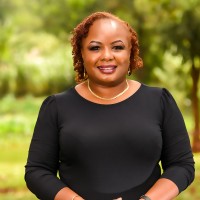
Maryana Munyendo
Moderator
Founder and CEO Missing Child Kenya
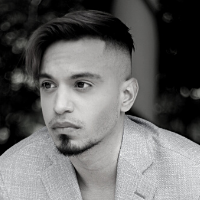
Jose Alfaro
Panelist
Lived Experience Expert
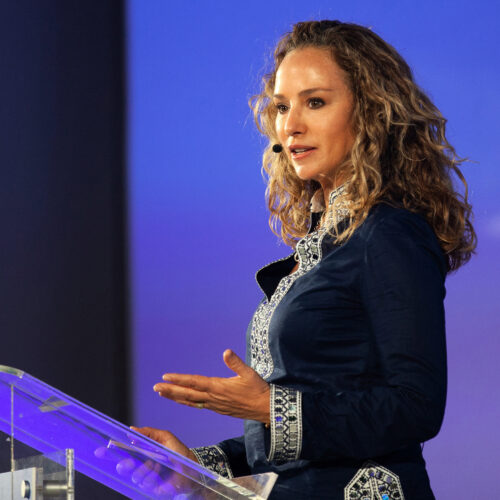
Lisa Kristine
Panelist
Photographer and Founder of Human Thread Foundation
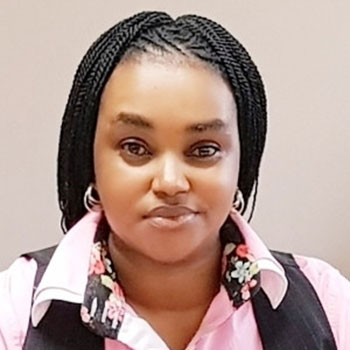
Malaika Oringo
Panelist
Founder and CEO, Footprint to Freedom
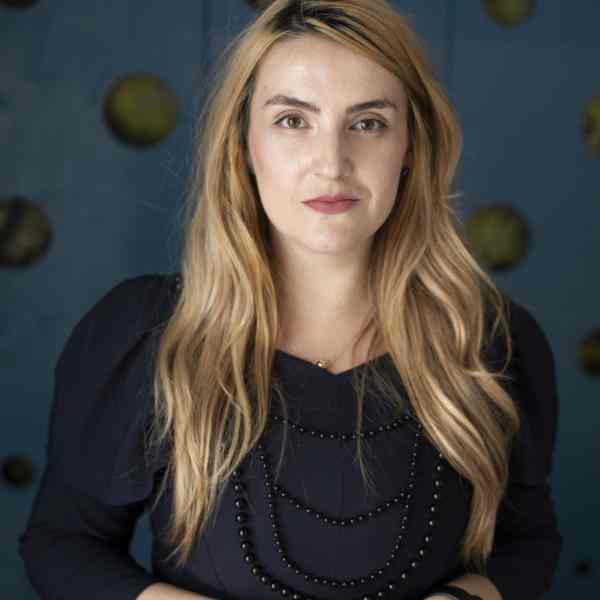
Ioana Bauer
Panelist
Chairwoman, eLiberare
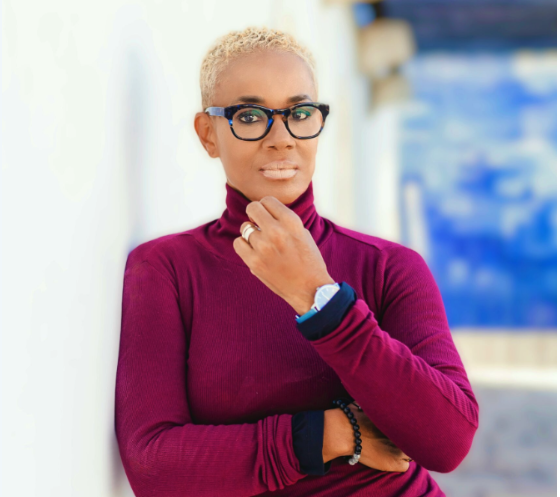
Brook Parker-Bello
Panelist
Founder and CEO, More Too Life
Morning Side Event Session – 90 Minutes

Side Event F1: Cultural Values and the Legitimation of Modern Slavery
This Side Event intersects the stories of two survivors from Cameroon and Mauritania. It draws a new perspective on how to dismantle the cultural norms and mental chains that perpetuate slavery in many countries of the world. Drawing on their experiences, the event will provide an extensive view of the different ways to deal with the perpetuation of slavery and offer insights into the costs of never giving up and changing communities, one person at a time. Both facilitators will offer basic details and context about their own countries. From there, they will be able to elaborate on the various forms of modern slavery and how they lead the struggle to eradicate it from their own perspectives.

Side Event F2: Resourcing Survivor Leadership
This Side Event provides an open and inclusive space to explore the breadth of what is meant by resourcing and to consider the various and multi-layered ways that resources can be directed toward growing survivor leadership. This session will showcase a range of investments in survivor leadership across a range of locations and contexts, including education and training, research, network-building, and unrestricted grant-making. The session will also provide attendees with the opportunity to hear directly from a survivor leader and a frontline NGO leader about the challenges they face in accessing resources, the resourcing strategies they’ve employed, and the practices that truly support and sustain their leadership. The 90-minute session will include a moderated panel conversation between a survivor leader from Brazil, an NGO leader from Uganda, and funders investing in survivor leadership and a Q&A session.
Afternoon Side Event Session – 60 Minutes

Side Event G1: Our Trauma, Our Wellness, Our Success
With this Side Event, the facilitators hope to present the impact trauma has on survivors, how each survivor experiences trauma differently, and how the process of ethical engagement of survivors can prevent the re-traumatization and tokenization of survivors in the human trafficking sector. This Side Event also aims to address cultural barriers, inter-generational issues, toxic masculinity, and possible solutions for said issues.
The illiterate of the 21st century will not be those who cannot read and write but those who cannot learn, unlearn, and relearn. – Alvin Toffler

Side Event G2: Legislating Against Slavery - What Makes Effective Anti-Slavery Law and How Can We Get There?
This Side Event aims to address the legislative gaps that exist in many countries’ frameworks for addressing modern slavery. Through a participatory tabletop discussion, participants will contribute to a new global evaluation framework for assessing all states’ domestic legislation. The session will share insights on what makes effective antislavery law based on a multi-stream research project that combines learnings from government, civil society, and survivors with international and comparative legal analysis. The facilitators also seek to co-create a new evaluation framework for assessing effective antislavery laws that foreground the diverse voices of participants. Survivor perspectives and leadership will be explored to inform legislative development, review, and reform processes.
Workshops
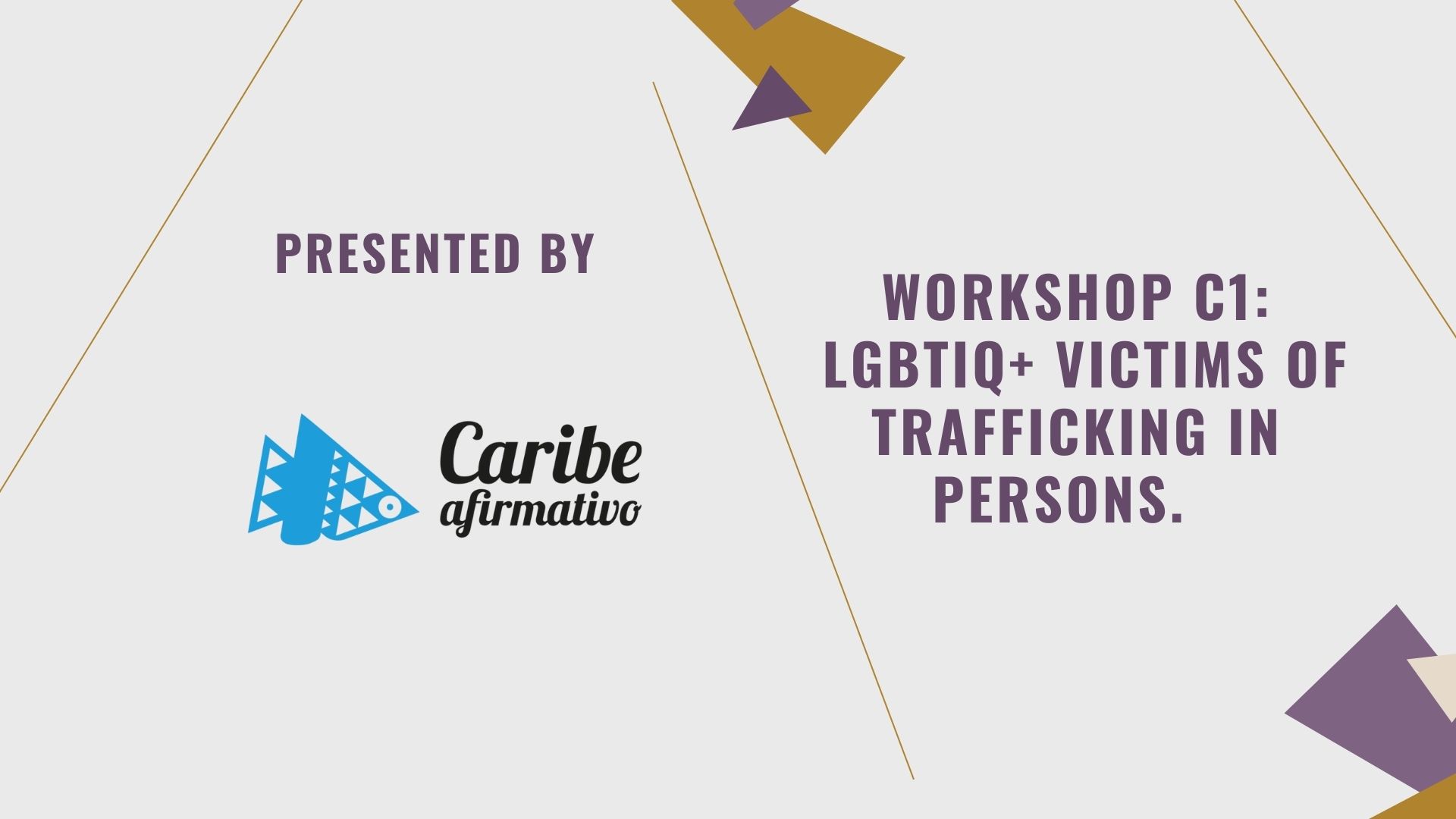
Workshop C1: LGBTIQ+ Victims of Trafficking in Persons
The facilitators of this Workshop will use dynamic activities and critical pedagogy, such as an auction, card games, and word searches, to engage participants and make learning meaningful and fun for participants while recognizing their lived experiences. The Workshop focuses on the gender and sexual diversity approach to analyze and understand cases of human trafficking and modern forms of slavery, emphasizing the modalities of forced labor and sexual exploitation and teaching participants to identify and analyze cases of modern slavery from these perspectives, The proposal directly addresses the vulnerability of LGBTIQ+ people to these crimes and ensures a safe space for survivors to engage in dialogue.

Workshop C2: Effective Global Strategies on Combating Trafficking for the Purpose of Sexual Exploitation
This Workshop focuses on effective strategies, practices, and models to combat human trafficking and sexual exploitation for policy and systemic change. The Workshop brings together survivor advocates, experts, and organizations that have a focus on advocacy and have led successful advocacy campaigns. The Workshop will provide participants with a systemic change mindset, a better understanding of strategic thinking pathways, and the concepts that lead to policy change, such as policy analysis, power of data, policy cycles, advocacy, and alliance building. Survivors will be engaged both in the design of the content of the workshop and also in facilitating the conversations during the workshop.

2023 Global Forum Planning Committee
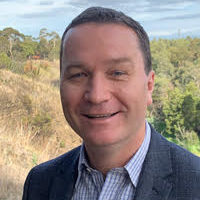
Dr. Andrew Catford
Global CEO
Hagar International
Dr. Andrew Catford's Bio
Andrew has extensive experience in the international development sector, having lived and worked for over 20 years in Asia, the Pacific, Africa, the Middle East, and South America. He has a proven track record of leading organizations to grow and tangibly impact the lives of some of the most vulnerable children, youth, men, and women worldwide. Andrew has worked for non-governmental organizations, including World Vision and Build On, and for the consulting company Hassall GHD, successfully securing and implementing large-scale international development projects for a wide variety of donors. Andrew has been a Country Director in Senegal and the Solomon Islands, and he has been a Board Member of the Solomon Islands Development Services Exchange and Board Chair of the microfinance institution Vision Fund.
Andrew holds a Ph.D. focused on effective community development approaches in Vietnam and he has also been a master’s degree lecturer at RMIT University, Melbourne, lecturing in the courses of development theory, gender, project design, and monitoring & evaluation. Andrew is currently the Global CEO of Hagar International, an international NGO with operations in 12 countries and with over 200 staff globally which over its 29 years, has become a recognized leader in its work to free and heal communities from the trauma of human trafficking, slavery, and abuse.

Dr. Minh Dang
Executive Director
Survivor Alliance
Minh Dang's Bio
Minh Dang, MSW, PhD is the Executive Director of Survivor Alliance, an international NGO that empowers survivors to be leaders in their own communities. She is also a Research Fellow and Lead in Survivor Scholarship and Wellbeing at the University of Nottingham’s Rights Lab. Her doctoral thesis, Wellbeing in our own Words: Survivors of slavery defining wellbeing, emphasizes the importance of moving beyond psychopathy when discussing survivors’ mental health and focusing on wellbeing.
Minh was born and raised in the San Francisco Bay Area region of California and is a proud two-time UC Berkeley alum. Minh earned her B.A. in Sociology and Masters in Social Welfare, with an emphasis on Community Mental Health. Minh loves the outdoors, is a fan of farmers’ markets, and the person making silly faces at your child in the supermarket. You will rarely find her without a journal or post-it notes, and hopes that someone will pay her to launch a stationery line called Minhspiration.
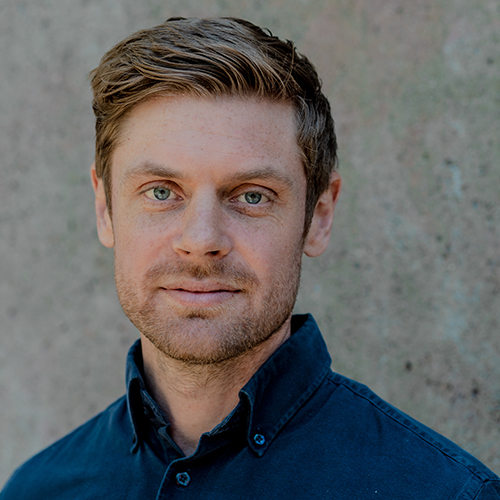
Jacob Flärdh
Chairman
Child 10 Foundation
Jacob Flärdh's Bio
Jacob Flärdh has extensive experience in international work for children’s rights with a collaborative impact approach. He has spent most of his career in multi-sectoral partnerships; academia, business industry, civil society, and the public sector working together to strengthen the rights of the child. Jacob is the initiator and first Chair of the World Anti-Bullying Forum, and as a former Head of Research, he has led several research projects on the impact and implementation of interventions to protect children from violence. Today Jacob is the Chairman of the Child10 Foundation, The Swedish Platform Civil Society against Human Trafficking and the Youth2030 Movement as well as board member of the Friends Foundation.
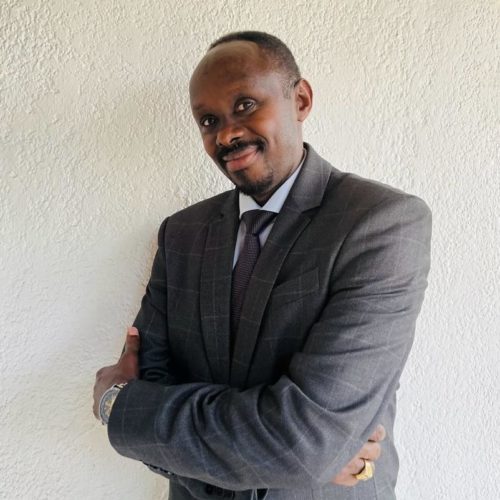
Me Andrews Kananga
Executive Director
Legal Aid Rwanda
Me Andrews Kananga's Bio
Andrews Kananga is the Executive Director of the Legal Aid Forum in Rwanda since 2008. A lawyer by profession, Andrews has over 18 years of experience in the legal field. Andrews’ legal expertise is around governance and justice sector reforms with a focus on access to justice for the most disadvantaged, human rights, and public interest litigation. Andrews holds an LLM in International Criminal Justice & Law of Human Rights, an LLB, and a PGD in legal practice. An avid Human Rights Defender, Andrews enormously contributed to legal reforms in Rwanda, including the establishment of a legal framework on human trafficking and participating in the drafting of the country’s Anti-human trafficking Law and many more pieces of legislation that favor access to justice for the poor and vulnerable in Rwanda.
Andrews is passionate about research and advocacy and has spearheaded several research works on access to justice in Rwanda and the Region. He is a founding member of the African Centre of Excellence for Access to Justice (ACE-AJ) and is currently the head of research in the same centre.
Andrews is also a member of the Court Mediation Advisory Committee in Rwanda, having been appointed in 2020 by the Honorable Chief Justice of Rwanda.
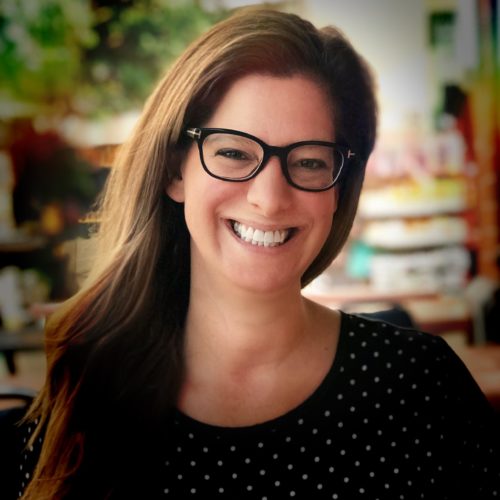
Mara Vanderslice Kelly
Executive Director
United Way Center to Combat Human Trafficking
Mara Vanderslice Kelly's Bio
Mara Vanderslice Kelly is the Executive Director of the United Way Center to Combat Human Trafficking. The Center to Combat Human Trafficking convenes the leading actors in the anti-trafficking field, along with business and civil society partners, to elevate, align and scale the fight against human trafficking and modern slavery.
Prior to joining United Way, Ms. Vanderslice Kelly served in President Obama’s Administration for five years. She served as Deputy Director of the White House Office and Senior Policy Advisor to the White House Domestic Policy Council. In these roles, she helped lead the President’s Advisory Council on Faith-Based and Neighborhood Partnership and her office’s work to combat human trafficking.
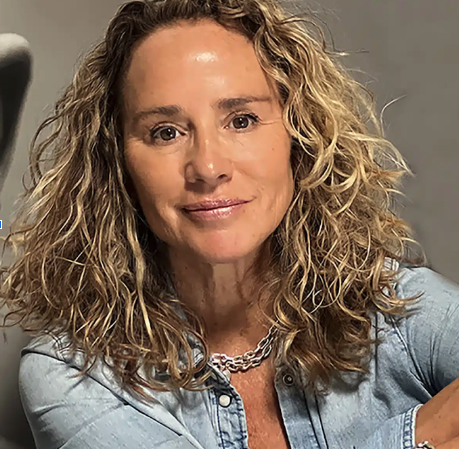
Lisa Kristine
Researcher
Photographer, Activist, Speaker
Lisa Kristine's Bio
Lisa Kristine is an internationally recognized fine-art photographer, humanitarian, activist, and speaker. For more than 30 years she has documented indigenous cultures and social causes in more than 150 countries across six continents. the current that runs through her work is the belief in the inherent dignity of every living being. Lisa masterfully navigates the emotional landscapes of her subjects and their environments, driving awareness around causes such as human trafficking, indigenous wisdom, and global unity.

Shawn MacDonald
CEO
Verité
Shawn MacDonalds's Bio
Dr. Shawn MacDonald is CEO of Verité, a civil society organization that promotes workers’ rights in global supply chains through research, consulting, training, assessments, and policy advocacy. Before his appointment as CEO in 2016, Shawn had led Verité’s research, program, and policy work since 2003. Shawn has broad international experience in labor rights, social entrepreneurship, workplace health, and multi-sector partnerships. Before joining Verité, he was Director of Accreditation at the Fair Labor Association; Vice President of Ashoka; Senior Advisor at Meridian Group International; and co-founder of the Development and Employment Policy Project. He also worked for a variety of civil society organizations in Asia, Africa, and Eastern Europe. He holds a Ph.D. from George Mason University’s Carter School for Peace and Conflict Resolution and an AB in History from Harvard University.

Awah Francisca Mbuli
Executive Director
Survivors’ Network Cameroon
Awah Francisca Mbuli's Bio
Awah Francisca Mbuli is a survivor of sex and labor trafficking and almost a victim of organ trafficking. She has a suspended Master’s degree in Human Rights and Multiculturalism from the Buskerud International University, Norway. She is the founder and Executive Director of Survivors’ Network (SN), a Cameroonian-based, female-led NGO leading the fight against all forms of human trafficking in Cameroon and Sub-Saharan African countries. She is an innovative and passionate leader who is fighting to prevent others from experiencing what she has been through.
Her work has been recognized nationally and internationally. She has two International Visitors Leadership programs awarded by the U.S Department of State in combatting human trafficking. In 2018 she was named a Trafficking in Persons hero for Cameroon, and she still is today. She also received recognition in 2020 for her work on Combatting Trafficking in persons. This recognition was awarded virtually.
Due to her hard work, she is the 2022 Ashoka fellow from Anglophone West Africa, joining two other women from Nigeria. Her organization, Survivors’ Network, also won the Elkes Impact award for best community-based organization in the fight to combat modern slavery in 2022 at the Global Freedom from Slavery Forum in Morocco, organized by Free The Slaves. She also doubled as their Ambassador for two years.
Francisca’s innovative programs focus on rescuing survivors, assuring their safe return home and reuniting them with their families. As part of this process sur psychosocial services, economically empowering women who are survivors of human trafficking and various violence as well as internally displaced women and children, in various diverse endeavors ranging from urgent economic empowerment to vocational skills training which doubles with a safe/shelter home. Among other accomplishments, she has helped rescue and reintegrate 65 female victims of human trafficking from the Gulf Corporation States to their respective Sub-Saharan African home countries and her work as at now has touched over 5000 women and girls directly and the masses indirectly.
She advocates both with governments and the general population to adjust policies governing the anti-human trafficking laws in her country and to push all
to get on board with this fight as we all know the just published statistic had raised from 40 to 50 million people in modern slavery with the Covid-19 being
one of the causes of the increase.
Some of Awah’s awards include:
– 50 Most Influential Cameroonians
– Mo Ibrahim Foundation Now Generation Fellow
– Obama Africa Leader
– African dream Achievers Award
– US Trafficking in Persons Hero award
– Global Freedom Exchange
– Elkes Impact Award
– Commonwealth Human Rights Initiative Management Committee
– Ashoka Fellow 2022
– Vital Voices Visionaries Fellowship 2022
– World of Difference Award 2022 for Economic Empowerment of Women.

Sophie Otiende
Chief Executive Officer
Global Fund to End Modern Slavery
Sophie Otiende's Bio
Sophie Otiende defines herself as a feminist, a teacher, and a survivor leader. Sophie has worked within the human trafficking field for a number of years, revolutionizing the ways in which survivors are supported, protected, and involved within the counter-trafficking movement. Her work has mainly focused on developing systems and processes for grassroots organizations, advocating for ethical standards for the protection of victims of trafficking, training, and development of curriculum on both protection and awareness of human trafficking. Her advocacy on standards of care and survivor engagement has made her a standout leader in the sector and earned her recognition as the US Trafficking in Persons Report Hero 2020.
She currently works as the Chief Executive Officer Director of The Global Fund to End Modern Slavery. Previously she worked as the Director of Consulting with Survivor Alliance and is the founder of Azadi Kenya, which is a survivor-led collective based in Nairobi. For more information check: www.sophieotiende.com

Ambassador John Cotton Richmond
U.S. Ambassador (ret.)
Ambassador John Cotton Richmond's Bio
Ambassador Richmond is an attorney and diplomat focused on combatting human trafficking, advancing democracy, and affirming human dignity. He was unanimously confirmed by the US Senate, named one of the federal prosecutors of the year, and called “every trafficker’s worst nightmare” by the head of the FBI’s human trafficking program. As Ambassador, he held the United States highest-ranking position dedicated to combating human trafficking.
As Chief Impact Officer at Atlas Free, Ambassador Richmond helps resource and accelerate organizations that fight human trafficking. Ambassador Richmond is a Senior Fellow at the Atlantic Council, Senior Advisor to Love Does, founder of the Libertas Council, and a frequent speaker on justice, foreign policy, leadership, and vocation.
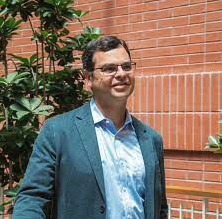
Philippe Sion
Managing Director
Humanity United
Philippe Sion's Bio
Philippe Sion is a Managing Director at Humanity United, leading the work of the foundation against Forced Labor & Human Trafficking. In this role, Philippe applies more than two decades of experience in social change. Working with the field and alongside HU’s partners and staff, he develops, refines, and implements strategies with an eye toward learning and impact. He focuses his time on a range of issues, from survivor leadership and movement building to corporate accountability and migration.
Philippe is also a Director on the board of The Freedom Fund.
Prior to joining HU, Philippe Sion was a Managing Director at FSG, a global consulting firm supporting leaders in creating social change. At FSG, Philippe dedicated a large portion of his time to working with foundations on systems change strategies and collective impact. He managed FSG’s partnerships with several Fortune 500 corporations, advising them on corporate philanthropy, corporate social responsibility, and shared value. Philippe also co-led the firm’s working group on diversity, equity, and inclusion.
Philippe previously worked in social and public sector consulting at both the Bridgespan Group and McKinsey & Company, held a research fellowship at the McKinsey Global Institute, and served as an Associate Director of the World Economic Forum, where he oversaw the economics and finance sessions for the annual meeting in Davos.
Philippe has lived and worked in Latin America, Europe, Asia, the Middle East, Africa, and the United States. As the son of two refugees, Humanity United’s mission has both professional and personal resonance for him.

Andrew Wallis
Founder and CEO
Unseen
Andrew Wallis' Bio
Andrew Wallis OBE is the founder and CEO of Unseen, a multi-award-winning organization working toward disrupting and challenging modern slavery. He was the chairman of the Working Group for the Centre for Social Justice’s landmark report “It Happens Here: Equipping the United Kingdom to Fight Modern Slavery,” which provided a comprehensive roadmap for government, statutory authorities, and businesses to eradicate slavery in the UK. “It Happens Here” is acknowledged as the catalyst for government action, particularly the UK’s Modern Slavery Act. He was a member of the Evidence Review Team that worked on the Modern Slavery Bill and worked with politicians, businesses, investors, and NGOs to ensure the Transparency in Company Supply Chains clause inclusion in the UK Modern Slavery Act.
Andrew has a long history working to eradicate modern slavery and is a recognised global subject matter expert. In 2015 he was awarded an OBE for his work that led to the landmark UK Modern Slavery Act. He spends much of his time working and advising businesses from the C-Suite to frontline on how to effectively tackle modern slavery in their supply chains and practices and works with NGOs, academics and many others to deliver effective solutions to a global problem. You can find out more about Unseen and their work with businesses here. He works regularly with media outlets such as BBC News and Radio; Sky News; Al Jazeera, and CNN. He has been called; “the loveliest disruptor you could ever meet.”
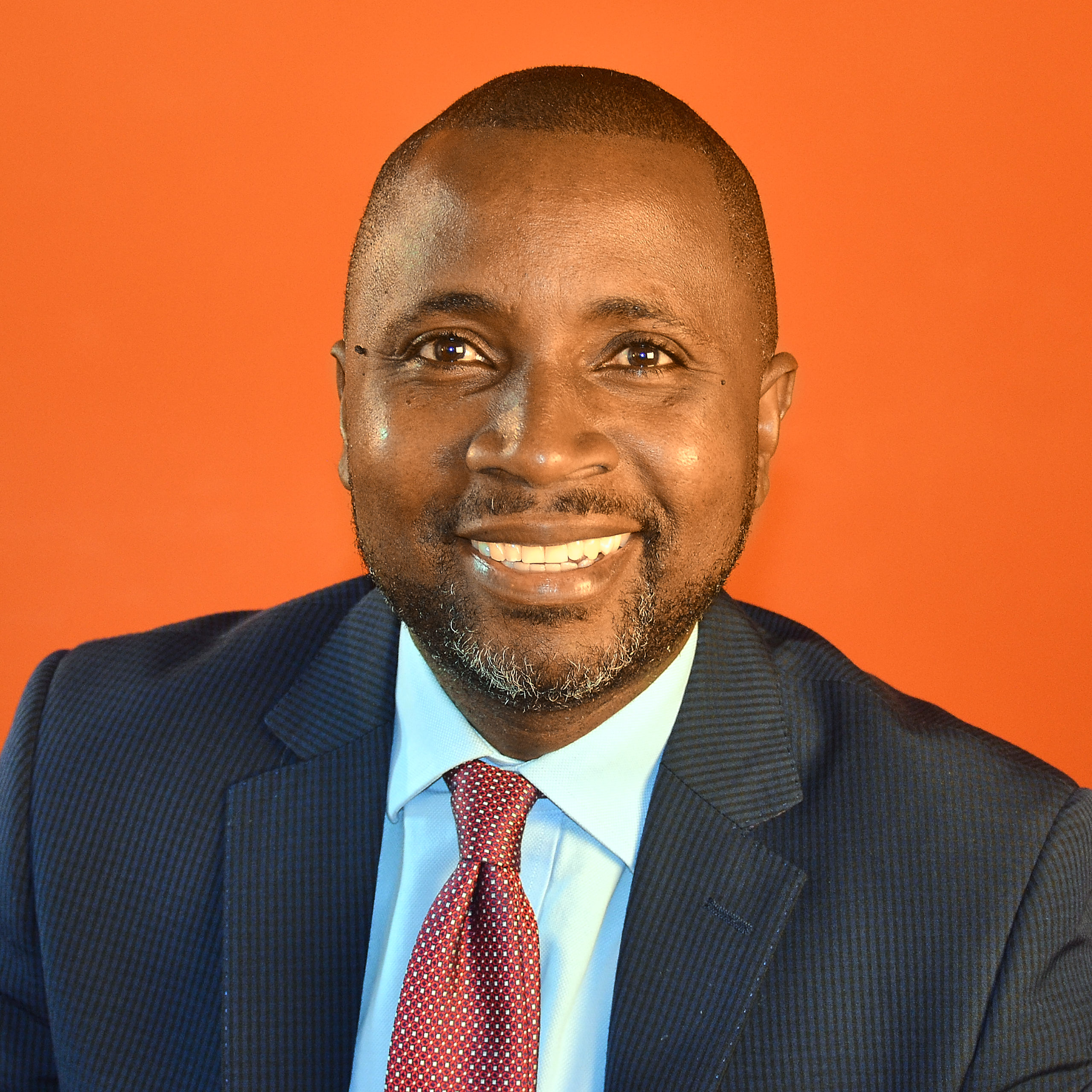
Bukeni Waruzi
Executive Director
Free the Slaves
Bukeni Waruzi's Bio
Bukeni Waruzi is the Executive Director of Free the Slaves. He has documented human rights abuses, implemented advocacy campaigns, conducted training workshops, and made public presentations in 40 countries in Africa, Asia, Europe, and the Americas. In the Democratic Republic of the Congo, his home country, he formed the grassroots nonprofit group AJEDI-KA/Child Soldiers Project to confront armed militias’ widespread enslavement of children. He videotaped evidence that led to the imprisonment of a notorious warlord. In Kenya, Waruzi served as a program manager for the Porticus Foundation, overseeing human rights, civic engagement, education, and climate change projects. He served as executive director of Watchlist in New York, an organization that protects children in conflict zones. And he has served as a senior program manager in New York for WITNESS, a group that empowers victims worldwide to collect evidence that brings perpetrators to justice. Waruzi has made presentations to the United Nations Security Council, the International Criminal Court, and the Children’s Caucus of the U.S. Congress.
2023 Global Forum Side Event and Workshop Planning Committee Members
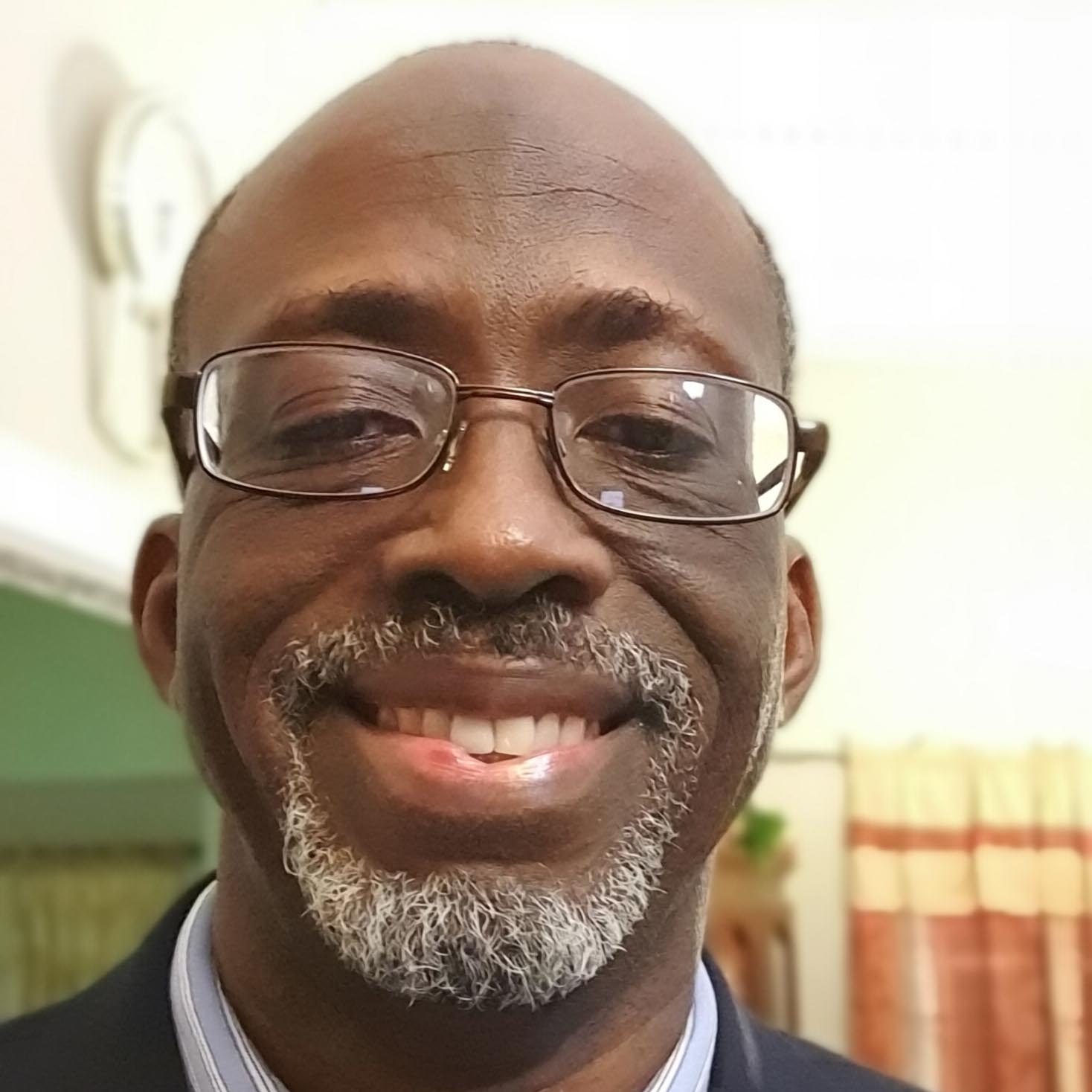
Adrian Alexander
Advocacy and Movement Building Country Manager
Free the Slaves
Adrian Alexander's Bio
Adrian Alexander is the Advocacy and Movement Building Country Manager for Free The Slaves based in Trinidad and Tobago. He has been privileged to serve as a volunteer with civil society organizations for the past 20 years. For 14 of those years, he has been involved in the fight against human trafficking. Through this work, Adrian is committed to helping shape a more compassionate, trauma-informed Caribbean.
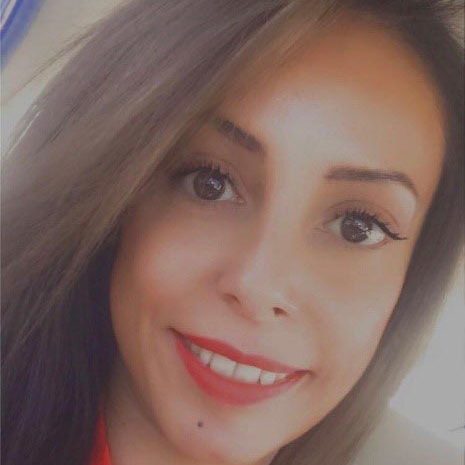
Rasha Al Manha
MENA Regional Director
Free the Slaves
Rasha Almaha's Bio
Rasha Al Manha is Free the Slaves’ MENA Regional Manager, representing the organization in the region and providing ongoing technical assistance to FTS’s partner organizations in strategic design and implementation.
Rasha has worked in a variety of industries for over 20 years, including banking, human resources and training, and project management and development. Rasha has spent the last ten years of her career supporting the strategic direction of large-scale humanitarian programs in Education, Health, Community Engagement, and Governance, as well as Monitoring and Evaluation by managing projects and programs responding to Syrian crises, either inside Jordan or across borders. Throughout her career, she has worked on UNICEF and USAID-funded projects with different national and international NGOs, including Save the Children, Blumont Inc., Abt. Associates Inc., and Jordan River Foundation.
Rasha has several professional certifications, including Project Management Development (PMD – Pro 1), Certified International Professional Trainer (CIPT), in addition to a bachelor’s degree in English Literature and Linguistics.
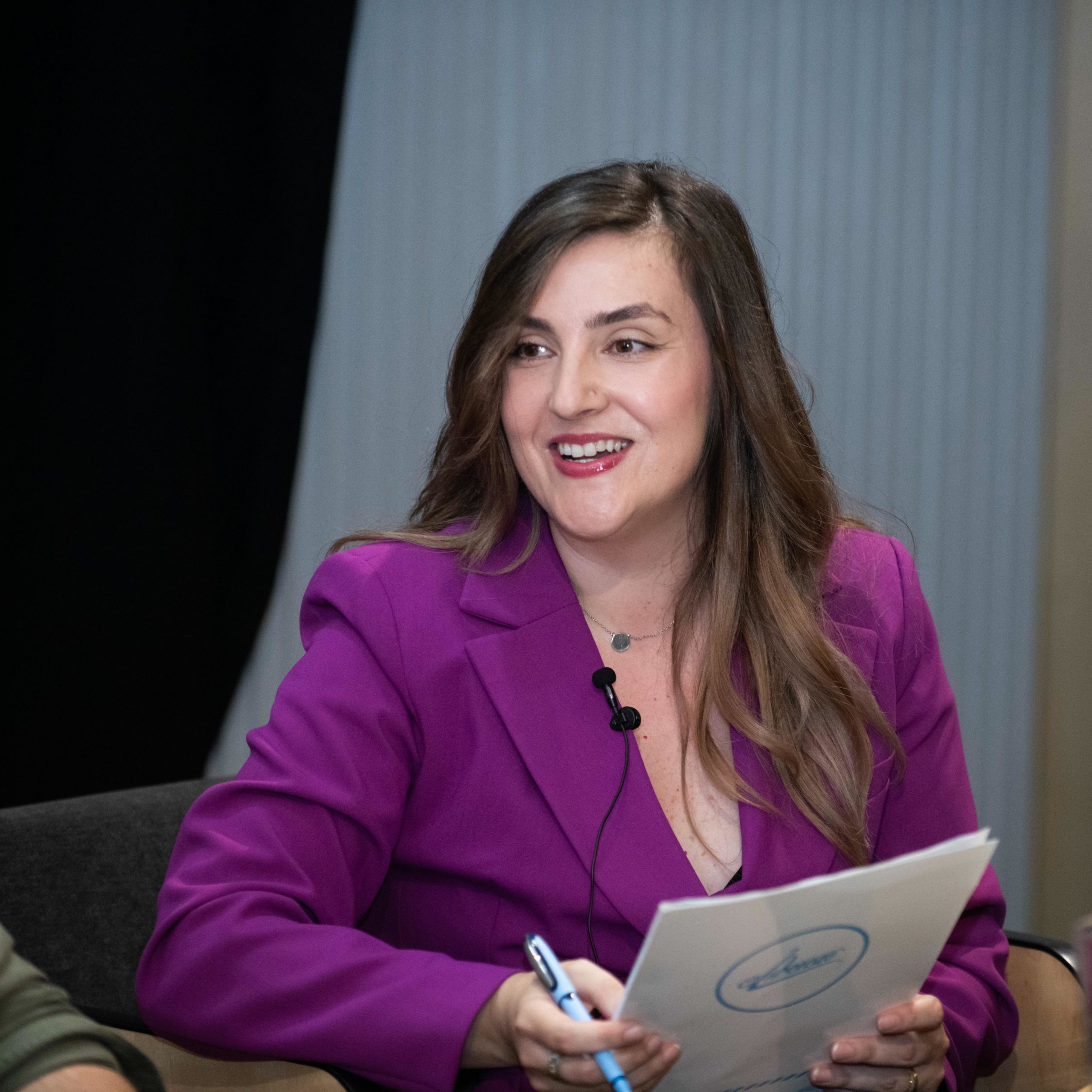
Ioana Bauer
Chairwoman of the Board
eLiberare
Ioana Bauer's Bio
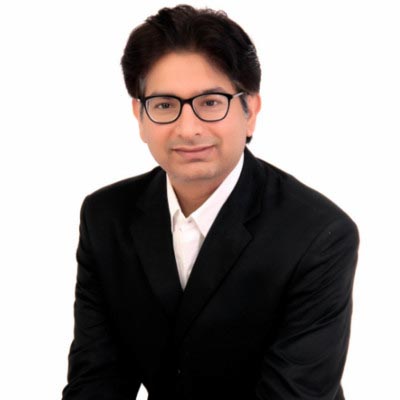
Kuldeep Singh Chauhan
Asia Regional Director
Free the Slaves
Kuldeep Singh Chauhan's Bio
Kuldeep Singh Chauhan is the Regional Director for Asia at Free the Slaves. Kuldeep has fifteen years of practical experience in community development and human rights. He has experience in training and capacity building in private sector supply chains, stakeholder relations, resource mobilization, and coalition building across Asia. As the Regional Director for Asia at Free the Slaves, he represents Free the Slaves in the region; provides ongoing technical assistance to partner organizations in strategic design, implementation, measurement, and reporting; and holds responsibility for the overall management of the regional program, strategy development, business development, and program oversight.
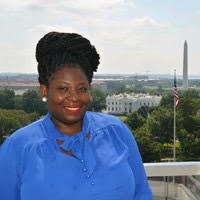
Evelyn Chumbow
Board of Directors
Human Trafficking Legal Center
Evelyn Chumbow's Bio
Evelyn Chumbow is a survivor of child labor trafficking turned anti-trafficking activist and public speaker who focuses her life’s work on ending modern-day slavery. Today, Ms. Chumbow works tirelessly to raise awareness in communities to create employment opportunities for trafficking survivors. She currently serves on the Board of Directors for the Human Trafficking Legal Center and Free the Slaves. She has been invited to brief government agencies about human trafficking from a survivor’s perspective, including the Department of Homeland Security, the FBI, the State Department, and the Department of Justice.
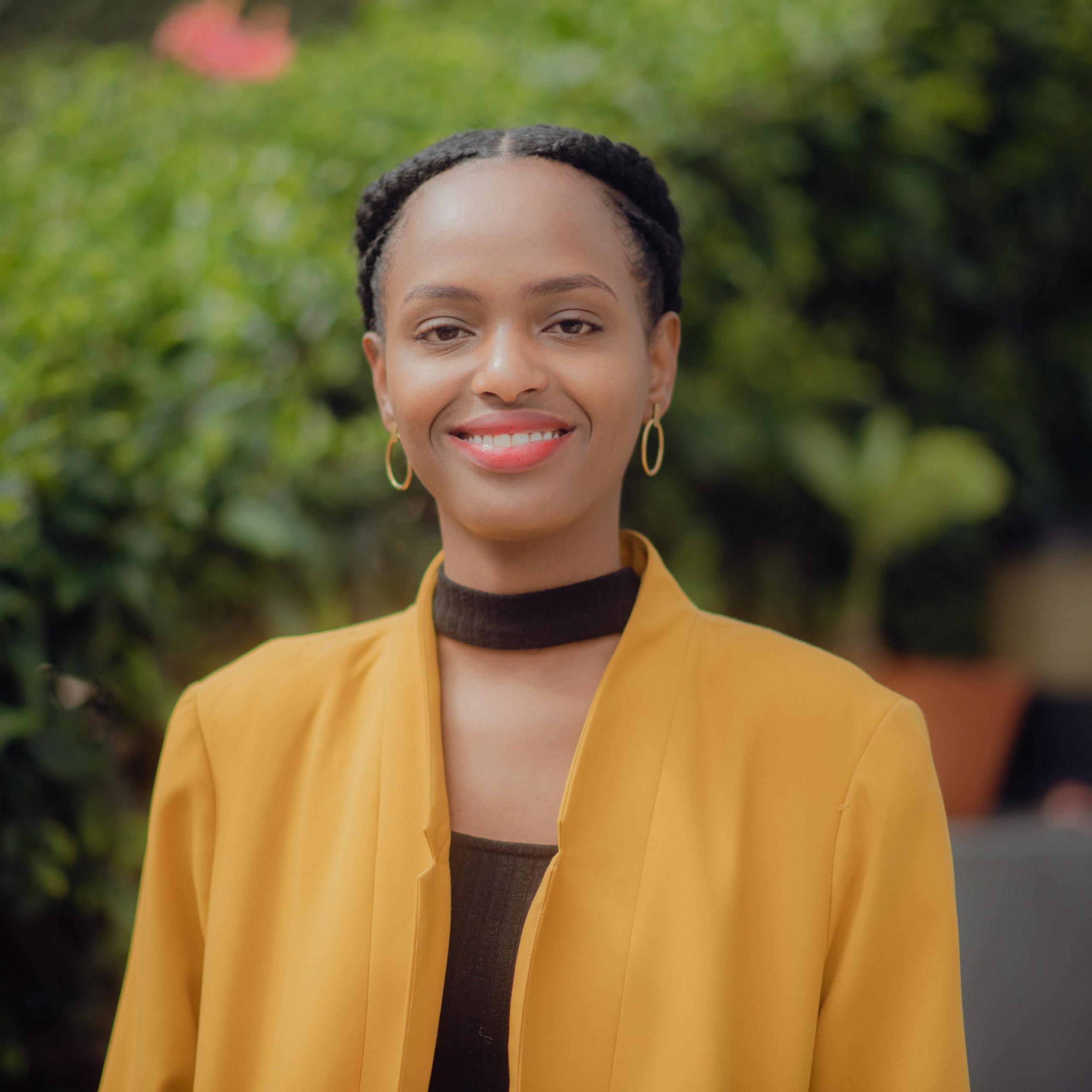
Aline Gaju
Communications Officer
Legal Aid Forum Rwanda
Aline Gaju's Bio
Aline Gaju is the communications officer at the Legal Aid Forum, since 2022. As Communications Officer, she is in charge of developing and implementing effective communication, visibility, and branding activities and strategies for the organization. Aline also coordinates and manages events such as conferences and workshops. In her role at LAF, Aline has helped to organize the Africa Regional Freedom from Slavery Forum that took place in November 2022, in Kigali.
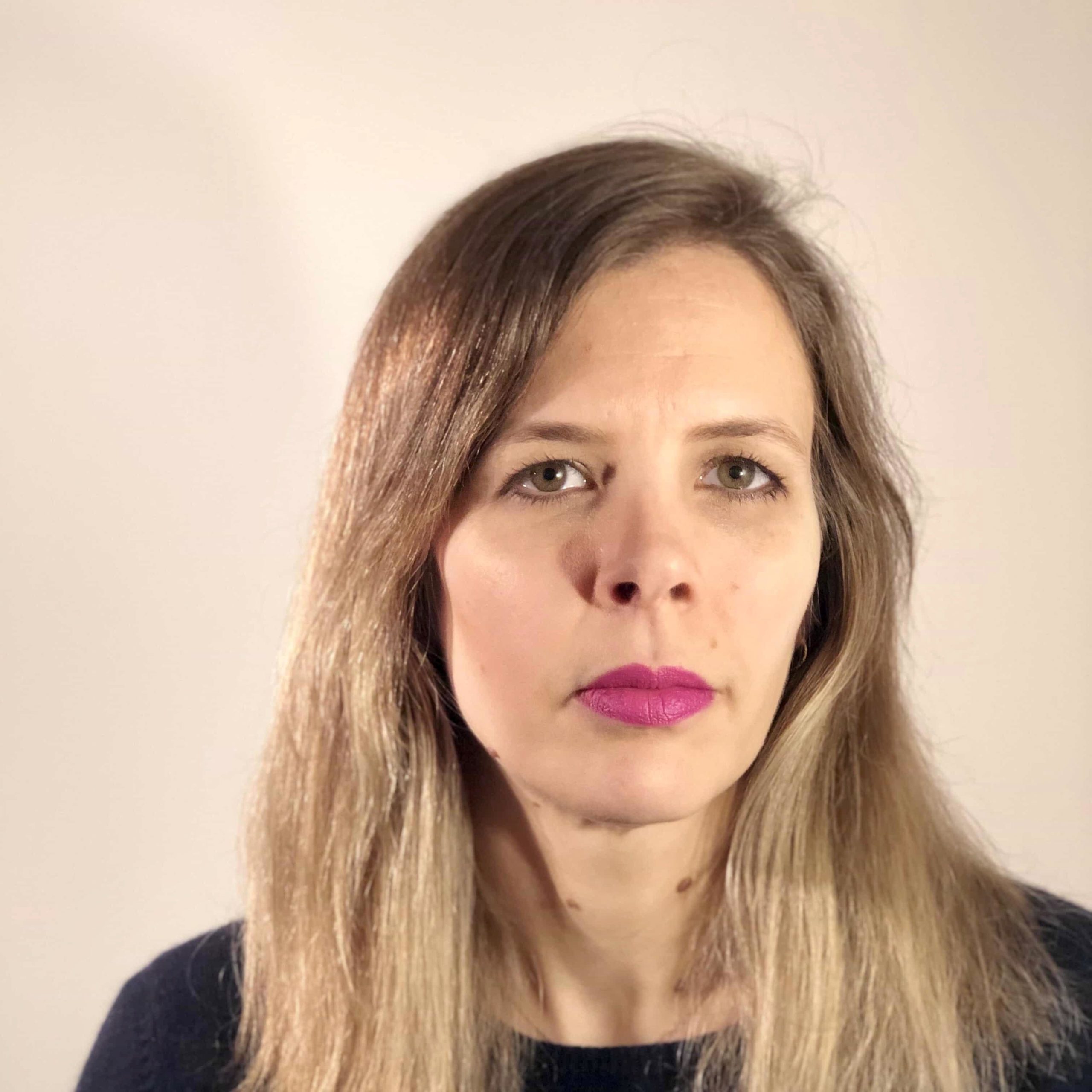
Joanna Ewart-James
Executive Director
Freedom United
Johanna Ewart-James's Bio
Joanna is Co-Founder and Executive Director of Freedom United, a global community against modern slavery powering action for change. Joanna is also a trustee at Labour Behind the Label Trust – campaigning for workers’ rights in the clothing industry. At the end of 2021 she completed her term as Chair of the Commonwealth Human Rights Initiative UK, during which she received an innovation award for the newly created Commonwealth 8.7 Network on modern slavery. Joanna was previously with Walk Free and Anti-Slavery International, where she developed and directed their work on business engagement, including coordinating the Cotton Campaign in Europe. Joanna is a contributing author to books including Vulnerability, exploitation and migrants: Insecure work in a globalised economy (Palgrave, 2015), and The SAGE Handbook of Human Trafficking and Modern Day Slavery. (SAGE, 2018). Her international human rights experience spans the UK diplomatic service, academia, and philanthropy, managing multi-million dollar budgets. Joanna holds a Masters in Human Rights from the University of London.
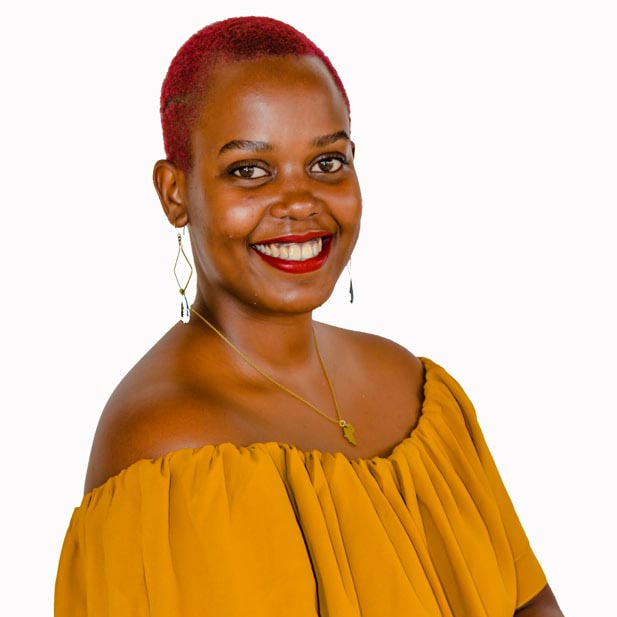
Leonie Mutoni
Programs Director
Legal Aid Forum Rwanda
Leonie Mutoni's Bio
Leonie Mutoni is the Programs Manager at the Legal Aid Forum (LAF), a position she has held since 2022. As Programs Manager, she oversees coordination, implementation and reporting of all project activities, programs and initiatives of the organization. As part of the Management Committee, she assists in developing strategic partnerships and strengthening linkages with donors, government institutions and civil society. She also provides high level technical and administrative support to LAF secretariat.
Leonie has hands-on experience in organizing events and coordinating with stakeholders, including co-organizing the Africa Regional Freedom From Slavery Forum that took place in November 2022, Kigali.
Leonie has a Bachelor’s Degree in Mass Media and Communication, with a concentration in Public Relations
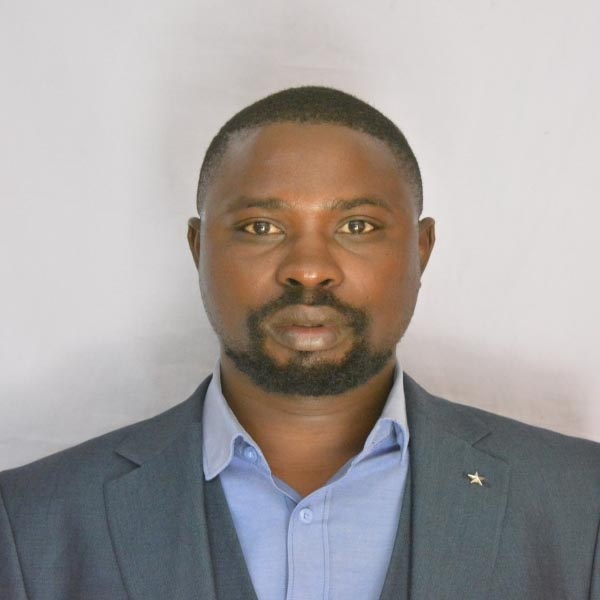
Jodom Mwebi
East and Central Africa Coordinator
Free the Slaves
Jodom Mwebi's Bio
Jodom has years of work and experience in Access to Justice, Human Rights and Governance. He has worked for programs and projects for Forced Migration, Transitional Justice, Land, Labor, Housing, Leadership, and Basic Education at Non-Governmental Organizations.
Jodom has ensured refugees, asylum seekers, victims of human trafficking, and internally displaced persons have access to and enjoy their rights in accordance with international humanitarian law, human rights law, and national laws. He has offered legal aid and advice on labor, land, and housing and facilitated out-of-court settlements. He has also advocated and lobbied for policies and legislations favorable to vulnerable persons, and empowered communities and persons to be monitors and champions of their human rights and legal entitlements.
Jodom aims to be objective, effective, and to achieve change in his work by employing participatory and people-driven methods, supporting initiatives for peace building and conflict transformation, advocating for constitutionalism and accountability, and promoting trauma sensitivity and self-care.
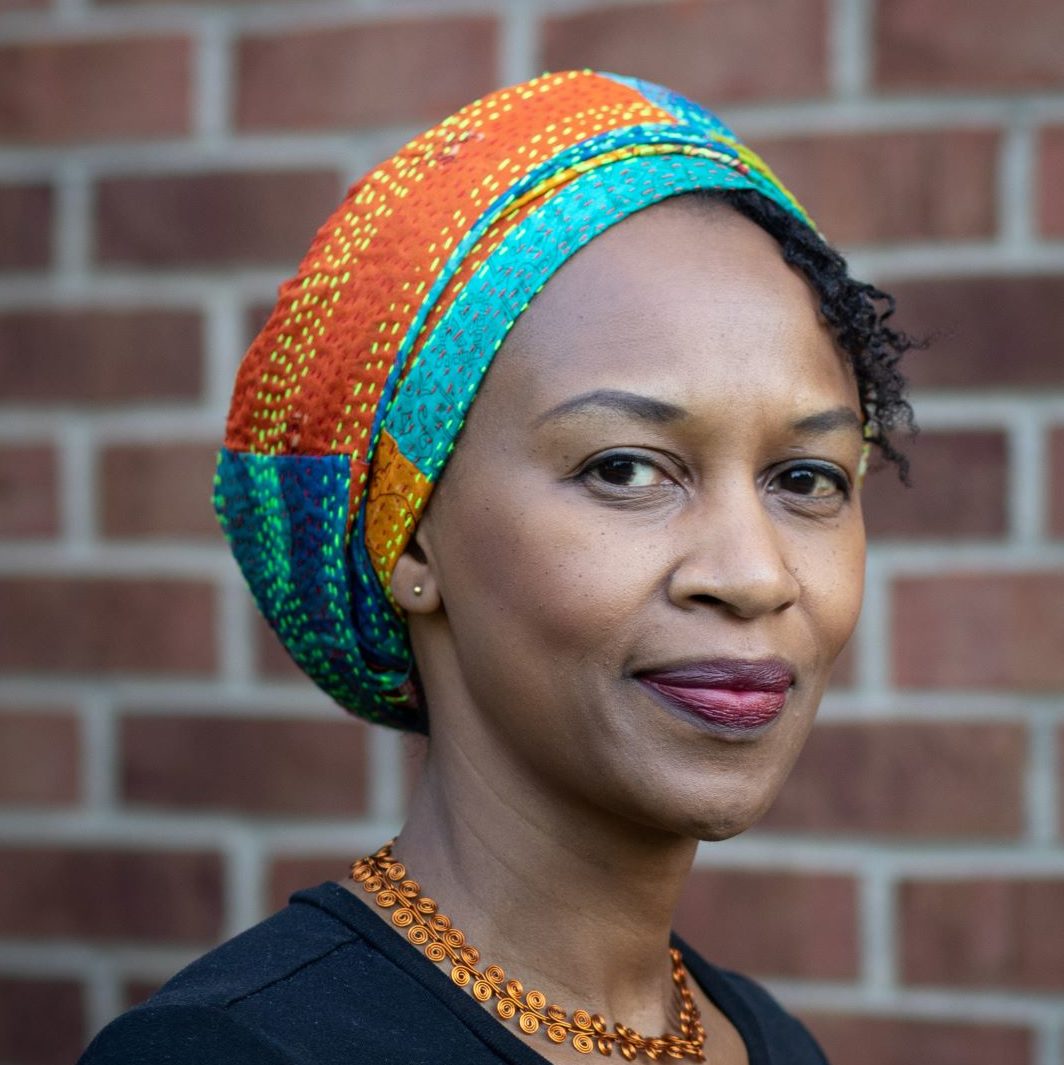
Dr. Njeri Kagotho
Associate Professor
Ohio State University
Dr. Njeri Kagotho's Bio
Dr. Njeri Kagotho is a social worker and an associate professor in the College of Social Work, Ohio State University. Njeri identifies as an educator-activist. Informed by critical pedagogy her teaching engages with the central tenets of social justice to amplify social work education and prepare students for radical social change. Dr. Kagotho’s scholarship examines the institutional factors linked to the wellbeing of at-risk and low-income individuals. Her contribution to this body of literature pays close attention to marginalized groups including immigrants and survivors of human trafficking. Specifically, Njeri examines how the intersection of informal institutions (religion, culture, and social norms), and formal institutions (laws, policies, and regulations) inform behavior. When these institutions intersect, the resulting environment creates complex and challenging conditions for marginalized groups already grappling with socio-political and economic inequalities.
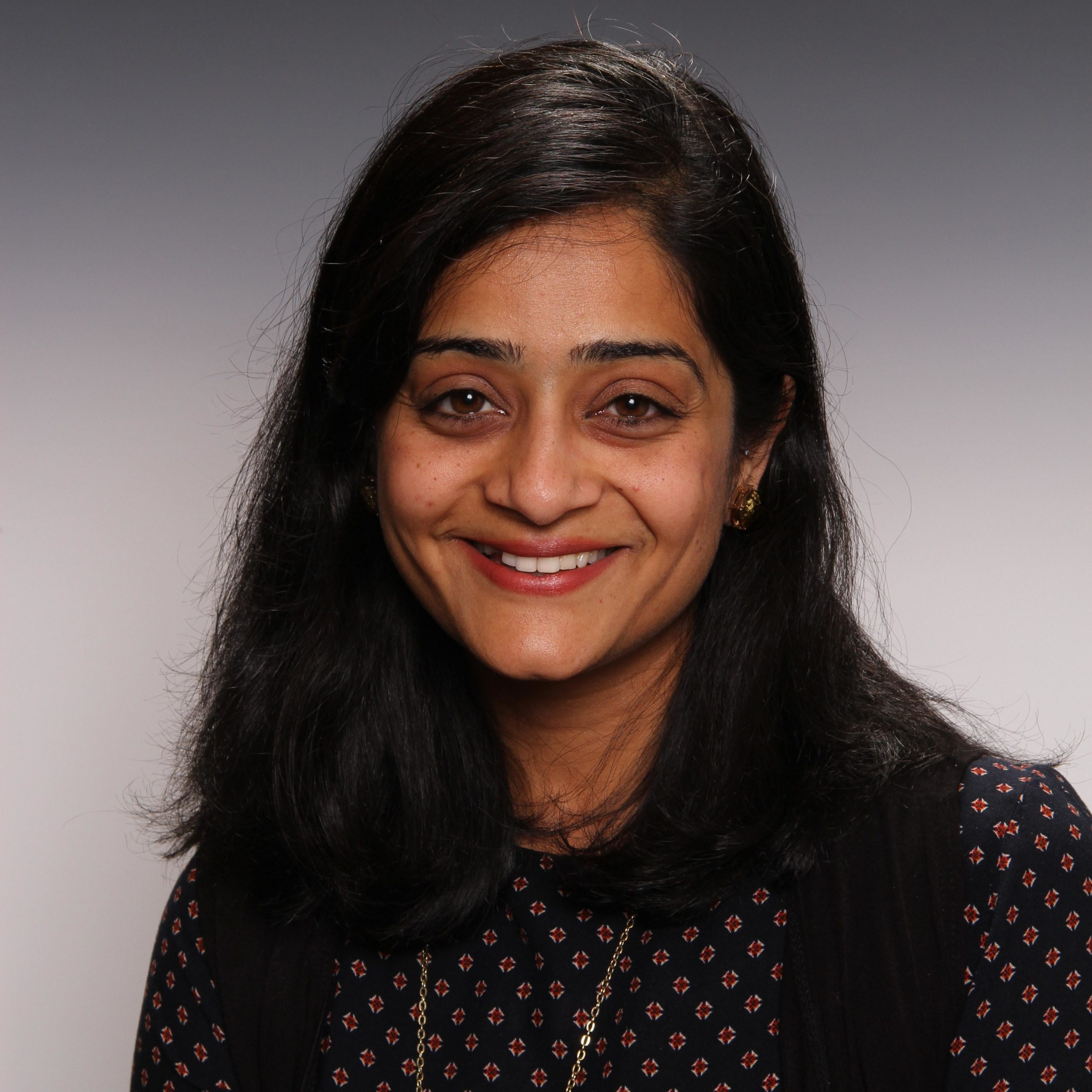
Dr. Sharvari Karandikar
Associate Professor
Ohio State University
Dr. Sharvari Karandikar's Bio
Dr. Sharvari Karandikar is an Associate Professor at the Ohio State University College of Social Work. Dr. Karandikar’s community-engaged work promotes the well-being of minoritized and marginalized women living on fringes of the society. To attain this goal, Dr. Karandikar has focused on understanding the lived experiences and expressions of resilience and agency among sex workers, victims, survivors of sex trafficking, surrogate mothers, and egg donors. Her academic journey is ingrained in her social work practice experience in the red-light area of Kamathipura (one of Asia’s largest and most diverse red-light areas) in Mumbai, India.
As a social work researcher, Dr. Karandikar collaborates with community partners and researchers across universities, disciplines, nationalities, and backgrounds. She has published 42 peer-reviewed manuscripts, co-authored one edited book on globalization and gender oppression, and delivered 57 peer-reviewed and 11 invited conference presentations, many of them internationally. The total grant funding she has received for her various studies is $902,355. Dr. Karandikar was recognized with the OSU College of Social Work’s Tony Tripodi Research Excellence award in 2017. In June 2022, she was awarded the Fulbright Specialist designation by a peer-reviewed panel of experts from the U.S. Department of State.
As a social work educator, Dr. Karandikar has designed and taught courses at the bachelor’s, master’s, and Ph.D. levels. Specifically, at OSU, she has taught courses on qualitative research methods, human trafficking, international social work, adolescent sexuality and parenthood, and introduction to social work. In May 2022, she received the Excellence in Teaching award at the doctoral level from the OSU College of Social Work. As an educator, Dr. Karandikar has mentored and supervised student research, for which she was recognized in 2020 with the Excellence in Undergraduate Research Mentoring Award from the OSU Office of Student Life. Additionally, in 2019 and 2015. she was nationally honored and recognized as a feminist mentor by the Council on Social Work Education: Role and Status of Women in Social Work Education.
ORCID: 0000-0002-4010-618X
Google Scholar: https://scholar.google.com/citations?user=jImeM2UAAAAJ&hl=en
Research Gate: https://www.researchgate.net/profile/Sharvari-Karandikar-3
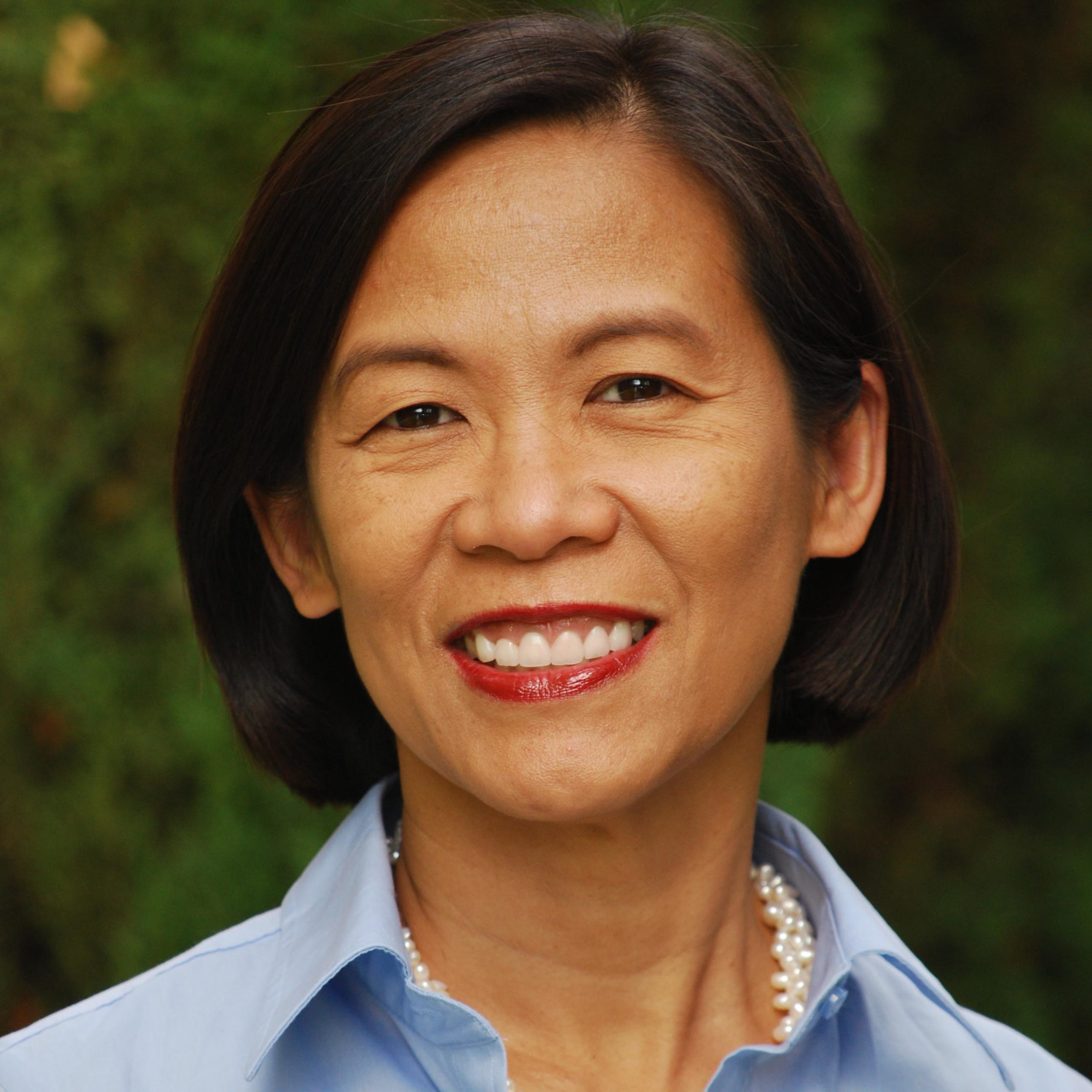
Diep Vuong
President
Pacific Links Foundation
Diep Vuong's Bio
Diep is a seasoned senior executive with multi-sector experience (nonprofit, technology, international) in supply chain solutions, strategic CSR partnerships, and organizational development. She co-founded and serves as President of Pacific Links Foundation, an international nonprofit with large-scale empowerment programs in schools, factories, and communities. Diep has created CSR partnerships with multinational corporations and designed comprehensive solutions and innovative tools to combat human trafficking and forced labor in the supply chain. She launched virtual learning and tutoring platforms, empowering thousands of young women to be knowledge workers and enter IT fields. Diep is as a graduate of Harvard University and San Jose State University; she also pursued her Economics PhD at the University of California, Berkeley. Diep came to the United States as a refugee from Vietnam.
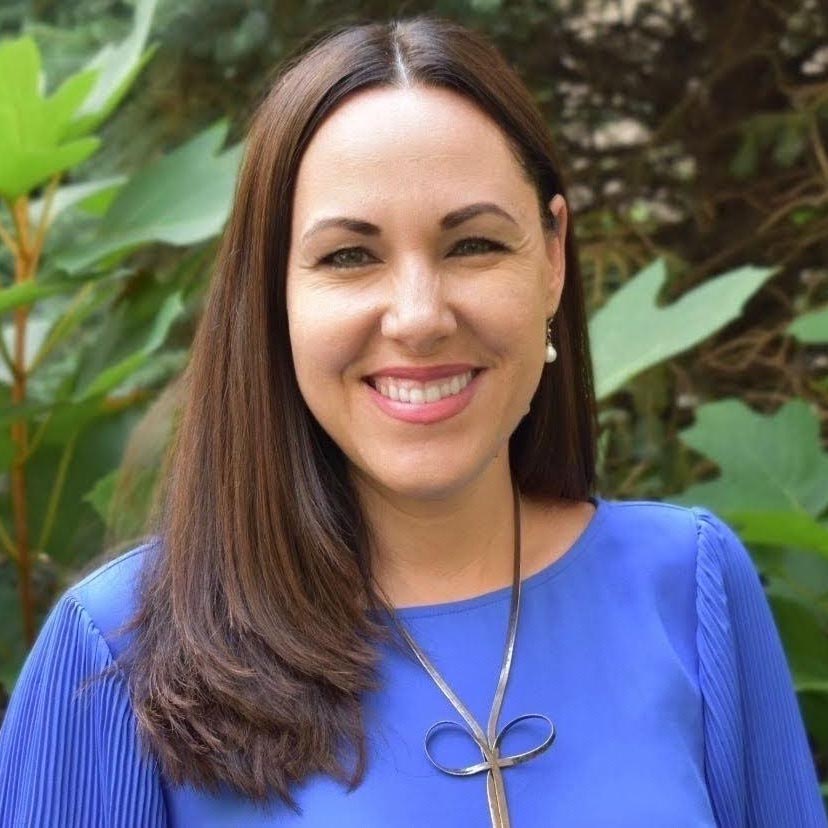
Melissa Yao
Executive Director
National Trafficking Sheltered Alliance
Melissa Yao's Bio
Melissa is the Executive Director of the National Trafficking Sheltered Alliance. Melissa has her master’s degree in International Development from Eastern University and has worked in the anti-trafficking field for over ten years at both the local and national level. For nearly eight years, Melissa worked in a direct service role at a long-term restoration home for survivors, where she noticed firsthand how service providers often felt siloed in their work. It was through this experience that Melissa realized the importance of building bridges and cultivating collaboration- forming a national community led by the belief that we rise by lifting others. As the Executive Director of NTSA, Melissa has had the opportunity to see the diversity of programs supporting survivors across the US and share with the service providers on the ground about the needs, challenges, and wins they experience for survivors in their programs. Before joining the anti-trafficking field, Melissa worked in advocacy and policy, supporting issues related to hunger and poverty.
Thanks to Our Sponsors!

